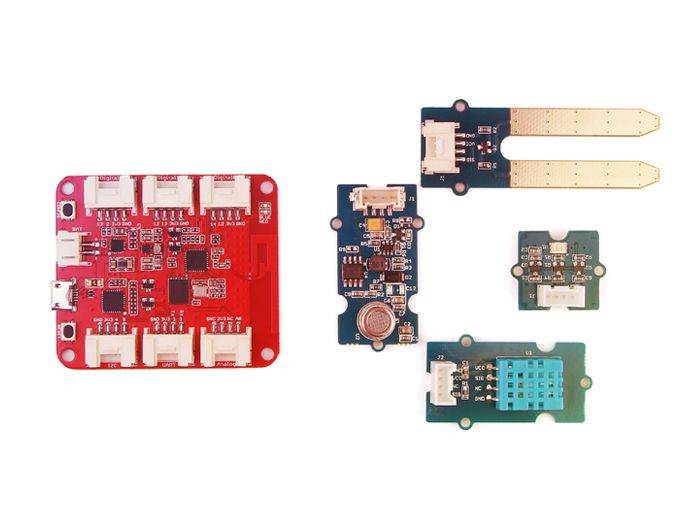Mini PC, Odyssey X86 Blue J4105 Windows 10 Desktop Computer, Intel Celeron Processor 8GB RAM and 128GB External SSD with Re_Computer Case,Dual Gigabit
Tip
This version of ODYSSEY - Blue J4105 is a pre-packed mini PC with re_computer case. There is no onboard eMMC but is equipped with 128gb SSD. The Pre-installed Windows 10 Enterprise has not been activated.
You can also choose the version of Win10 Enterprise Activated. Please confirm and purchase the model you need.
Odyssey Blue J4105 128 GB is a powerful mini PC with super low power consumption. It’s a perfect device for industrial and commercial applications. You can use it as office equipment or a compact gaming PC. The compact design also allows you to mount it behind a monitor to keep your desk clean and neat. With 4k HD video output, you can easily build your own home entertainment with ODYSSEY Blue.
Odyssey Blue J4105 mini PC allows you to simply build Edge Computing applications with powerful CPU and rich communication interfaces. The Odyssey Blue J4105, based on Intel Celeron J4105, is a Quad-Core 1.5GHz CPU that bursts up to 2.5GHz. There is also an onboard ATSAMD21 Core, an ARM Cortex-M0+ MCU that allows you to program Arduino on the x86 platform.
Please note that when you have powered on but the fan does not rotate, it may be due to the following reasons.
1. The CPU itself does not have a temperature sensor. The temperature sensor is on the PCB, close to the CPU.
2. The temperature threshold set in the BIOS is based on the temperature of the PCB, not the temperature of the CPU.
3. There is a delay in the CPU temperature transfer to the PCB.
At this time, please try to let the CPU run at full load for 20 minutes.
Support Windows and Linux OS
We have Windows 10 pre-installed but not activated, Just simply connect to a mouse, a keyboard and a monitor with the Odyssey Blue J4105 mini PC, you will get a powerful Desktop Mini PC that can run Windows and Linux OS.
You can start playing your favorite game right away.
If you are a Linux user,Just install your favorite Linux distribution
ODYSSEY Blue mini PC provides full support for popular Linux OS, like Ubuntu, Mint, Manjavo, and etc.
Key Feature
--Hyper V virtualization
the Odyssey Blue J4105 mini PC supports Intel Hyper V virtualization and can be virtualized with Promox or VMware ESXi to create multiple instances or install multiple systems which makes it perfect for home lab option.
For more information, please check our blog for the ESXi installation.
--Strong Wireless Supports
With Dual Gigabit Ethernet, you can build the OpenWrt project and pfSense with ease.
Dual-Band Frequency 2.5GHz/5GHz WiFi/ Bluetooth 5.0
There are also two of M.2 PCIe (B Key and M Key), which enables various expandable capabilities including Hard Drives, SSD, GPU, 4G, and even 5G cellular network connectivity.
--Extend up to 3 SATA with the power connector
You can extend up to 3 SATA with the power connector to build your NAS server(Network-Attached Storage), your high-performance Virtual Router, or a 4G LTE Gateway in your IoT applications.
--Machine Learning at The Edge
There is an onboard ATSAMD21 Core, an ARM Cortex-M0+ MCU that allows you to program Arduino on the x86 platform.
The Raspberry Pi compatible 40-Pin allows you to use hundreds of Pi HATs in the market.
The ODYSSEY Blue J4105 128 GB is more than just a mini-computer, with the Arduino Co-processor onboard, it can be used to connect with sensors, gyroscope, and much more.
--Support 4K HD
With 4k HD video output, you can easily build your own home entertainment with ODYSSEY Blue Desktop Mini PC. giving you a good television experience with true-to-life picture quality, which can be used as a media center to enjoy TV shows or games.
--Support Dual Screen Display
Dual monitors support via HDMI and Type-C interface, double your Work
efficiency
Specification
Components :ODYSSEY Blue J4105 128 GB
Processor:Intel Celeron J4105 (Frequency: 1.5 - 2.5GHz)
Coprocessor :Microchip ATSAMD21G18 32-Bit ARM Cortex M0+
Graphics:Intel UHD Graphics 600 (Frequency: 250 – 750MHz)
Memory :LPDDR4 8GB
Storage :External 128GB S
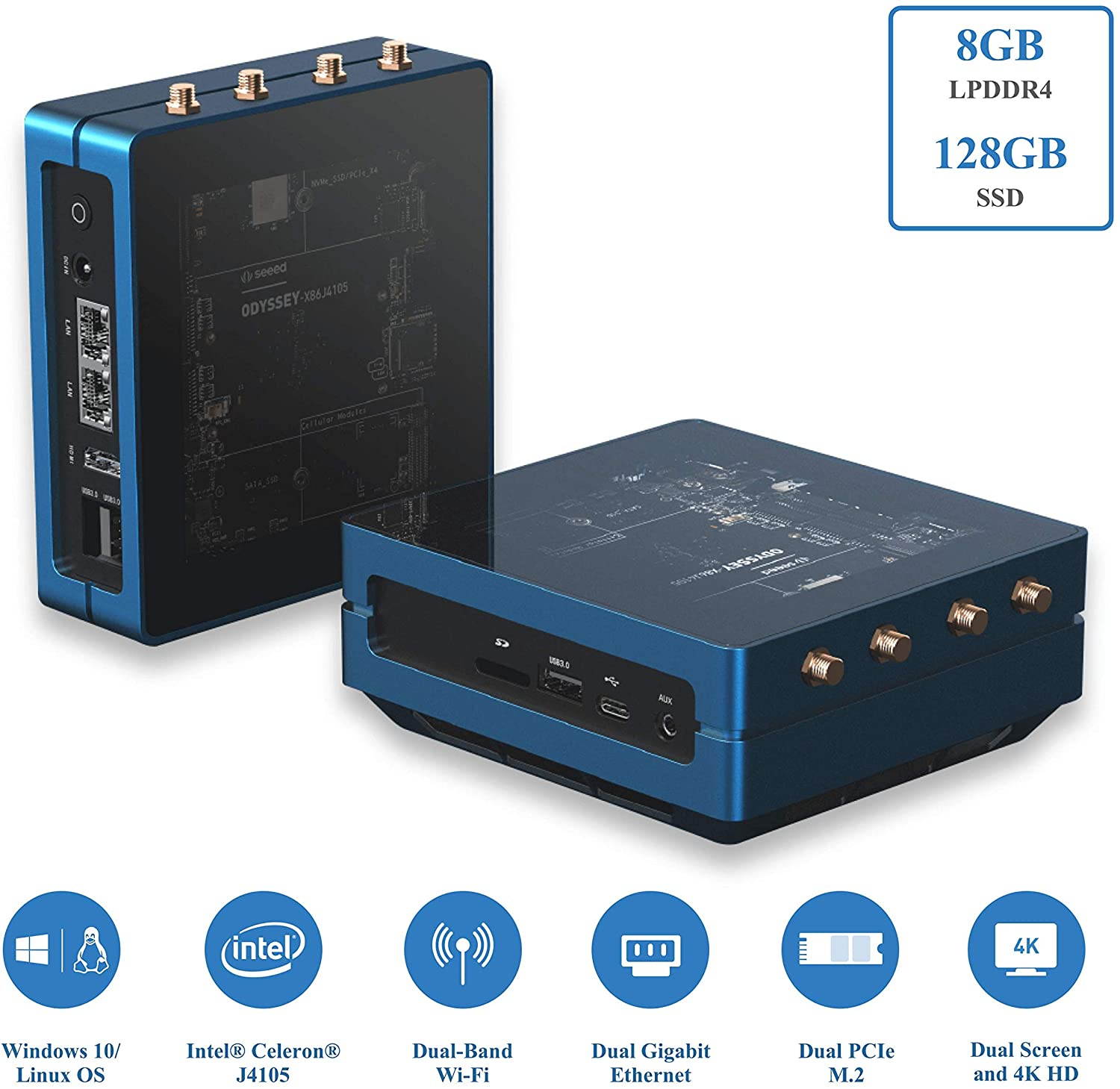
Seeed Studio SLD62445P 2.8 TFT Touch Shield
Brown Paper - 61132

SeeedStudio EMW3239 Combo Module-WiFi Bluetooth BLE
-EMW3239 is an embedded module supplied by 3.3V voltage with radio-frequency chip with both Wi-Fi and BT4.1 and the ARM Cortex-M4 MCU operating at a 100 MHz frequency. SRAM up to 256KB, on-chip Flash up to 1MB and off-chip up to 2MB. EMW3239 has abundant peripherals supplied for different Wi-Fi and BT devices. EMW3239 contains 2.4GHz WLAN IEEE 802.11 b/g/n MAC/Baseband/Radio and Bluetooth 4.1 (Supportable with BLE). Power amplifier is suitable for output power demand in massive devices. EMW3239 has low noise amplifier with best receive sensitive and internal radio-frequency transmit-receive switch.FeaturesPropertiesDual Mode Bluetooth + Wi-Fi Combo;Cortex-M4 MCU and Wi-Fi/Bluetooth Radio-Frequency Chip;256KB SRAM, 1MB on-chip Flash and 2MB off-chip SPI FlashOperating voltage: DC 2.66V~3.6V ;Bandwidth: 20MHz. Maximum transmission rate: 72.2MbpsWi-Fi propertiesSupport 802.11b/g/nSupport station and Soft AP modeBaud Rate: 921600Bluetooth propertiesClassic Bluetooth and Low Power Bluetooth (dual mode)Support Bluetooth 4.1Antenna: On-board PCB AntennaPeripherals1x I2C2x USARTSPI/I2SCANUp to 30 GPIOs with hardware interruption12-bit, 2.4MSPS ADCSerial wire debug (SWD) & JTAGOperating temperature-30¡æ to +70¡æApplication scenariosSmart EnergySmart SecuritySmart SecurityIndustrial AutomationHealthcare DevicesInstruments and MetersHome AutomationSmart TransportationSmart Lighting
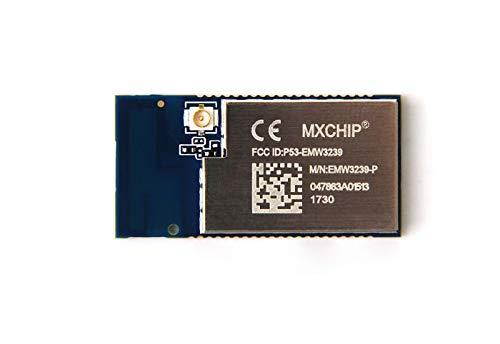
1pc 1.5W Solar Panel 81X137
This solar panel is made of single-crystal material that performs high solar energy transformation efficiency at 17%. It has a fine resin surface and sturdy back suitable for outdoor environments. A 2mm JST connecter is attached to the penal, which makes it perfect to team up with most of our can-use-solar-power-supply boards, like Seeeduino microcontroller series, Lipo Rider charging boards seriesand XBee carrier WSN products series. The typical open circuit voltage is around 5V, depending on light intensity. In those bright summer days with clear sky and big sun, the peak OC voltage can rush up to 10V. To prevent any damage to boards that accept a narrow range of input voltage, like Lipo Rider, it's recommended to check whether the OC voltage is safe before any connection. Features Dimensions: 137x81x 2.5 (± 0.2 ) mm Typical voltage: 5.5V Typical current: 270mA Open-circuit voltage: 8.2 V Maximum load voltage: 6.4V Documents Please visit our wiki page for more info about this product. It will be appreciated if you can help us improve the documents, add more demo code or tutorials. For technical support, please post your questions to our forum. Technical Details Weight G. W 48g Battery Exclude
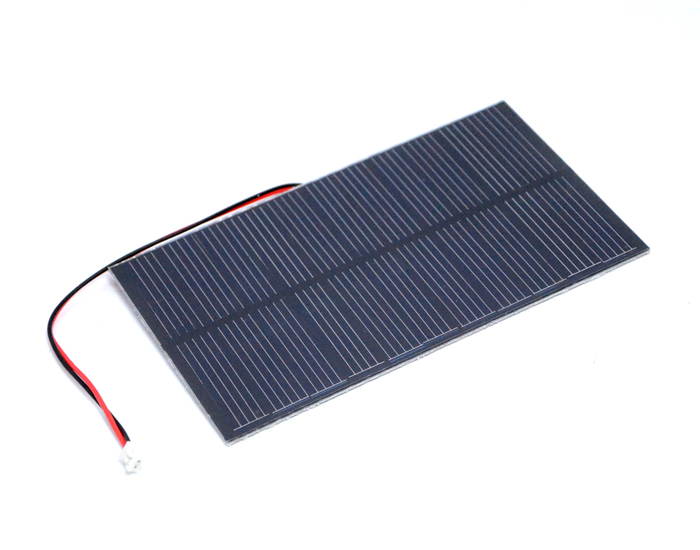
1pc Seeeduino Stalker V3.1
Description Maybe you are very familiar with the seeeduino stalker series, or maybe you are totally new to this feature rich Wireless Sensor Network Node. No matter what situation you are in, if you are going to make an outdoor data-logging application, you will find that Seeeduino Stalker is the best board. The main purpose of creating this series is to create an X-bee carrier board so that users can make outdoor application more conveniently. Ever since the first version be released in 2009, Seeeders have been continuously collecting feedback from users and kept upgrading the board. there are 6 versions ever existed during the past 7 years, this summer we are excited to release the most updated member of the Seeeduino stalker family--Seeeduino Stalker V 3.1. Seeeduino Stalker V 3.1 is not just a simple update of V 3.0. The main surprise you'll find about the board is impressively low power consumption, in sleep mode, the output current of the whole board will be as low as 100uA, the mian reason for this progress is that in V 3.1, when MCU is in sleep mode, all other power supplement, including Bee area port, 3.3 v port, VCC can be cut off manually, so that power can really be saved. Other Changes There is a toggle switch added to X-bee area, which allows you to select either the hardware serial port or software serial port base on what you want to connect. We also added 2 toggle switch on RTC circuitry corresponding 2 INT pin of MCU, so that users can easily choose which INT pin to be connected with RTC INT port then activate MCU. Just like every other revises, we fixed a few bugs. Features Arduino compatible, based on Seeeduino RTC powered by button cell only 2 toggle switch on RTC circuitry Serial interface with DTR for auto reset during programming when operating in standalone mode. (For programming, UartSBee must be bought separately) Bee series socket - 2*10 pin 2.0 mm pitch (which will mate with - one at a time - any of the wireless modules: X-Bee, Bluetooth-Bee, GPS-Bee or RF-Bee. ) 1 toggle switch on Bee socket Micro-SD card socket I2C Pin header (operation voltage is selectable: 5.0V or 3.3V ) User defined LED NOTE Please set D0, D1 as input before going into sleep mode Please turn on the power before using Bee, grove port, 3.3 v and 5v port The IO Ports work in 0~ 3.3 v level only Technical Details Dimensions 86.1 mm x 60mm x 16mm Weight G. W 51g Battery Lithium Cells/Batteries packed with equipment UN3481 -PI966 MCU ATmega328P Current in sleep mode
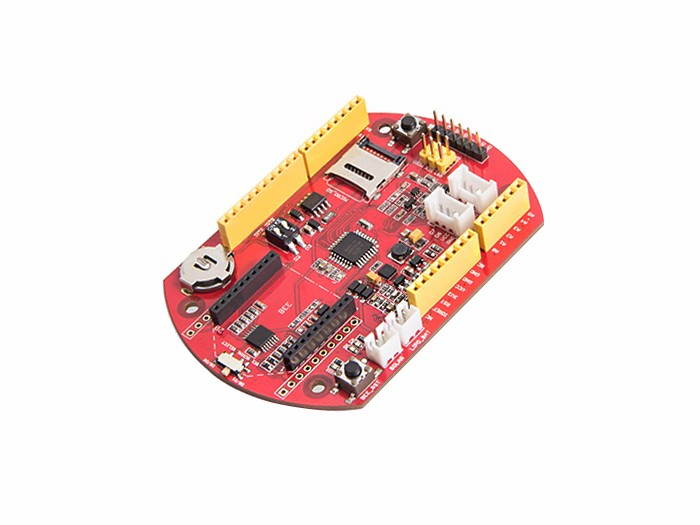
seeed studio respeaker core v2.0
DescriptionThe ReSpeaker Core v2.0 allows developers create powerful and impactful voice and sound interfaces. Suitable both as a base for smart assistance as well as responding to environmental sounds, the ReSpeaker Core v2.0 was designed with the idea that developers deserve to have many options available to them.We received much feedback from ReSpeaker Core v1 users and have added many requested features. Different from the original board this SBC is running Debian* with an onboard microphone array and software based voice enhancement algorithms.FeaturesDebian-Based Linux SystemSDK for Speech Algorithms with Full DocumentsC++ SDK and Python WrapperSpeech Algorithms and Features Keyword Spotting (Wake-Up) BF (Beamforming) DoA (Direction of Arrival) NS (Noise Suppression) AEC (Acoustic Echo Cancellation) and AGC (Automatic Gain Control)All-in-One Solution with High Performance SoC8 Channel ADC for 6 Microphone Array and 2 Loopbacks (Hardware Loopback)UPC NO:841454120285 SKU:ADIB07DN43Q7L
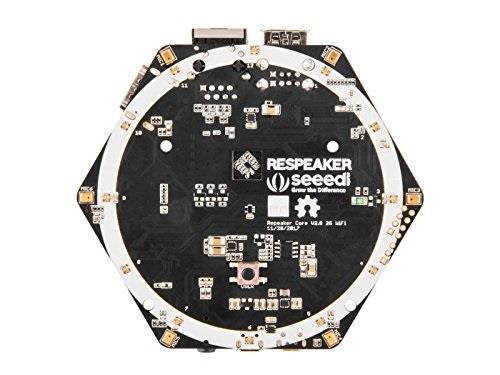
Seeed SEN11303P Grove Touch Sensor Module w/ TTP223-B Detector IC - Blue + White
This is a simple touch sensor module. You can use it to replace a traditional push button. Using the TTP223-B touch detector IC It measures the capacitance of a metallic pad. It can detect the change in capacitance when a finger is near it. This is the same technology used in the iPhone touch screen. So you can place the metallic pad under a non-metallic surface such as a plastic or glass sheet and it will still work as a button. This may be useful for projects that need to be waterproof. You can also make a secret button by placing it inconspicuously behind a smooth surface. For instance you could place them under a nonmetallic card table and by casually pressing the right location on a tabletop surface you could mysteriously control your DIY project.
Features
Grove compatible interface
2.0-5.5V DC supply
response time max about 60mS at fast mode, 220mS at low power mode @VDD=3V
Low power consumption
2.0cm x 2.0cm twig module
Power indicator led
Applications Ideas
Inconspicuous button
Water proofed electric product
Button key replacement
For all Grove users (especially beginners), we provide you guidance PDF documents. Please download and read through Preface - Getting Started and Introduction to Grove before your using of the product on our website seeedstudio.com
Note: The dimension is the size of outside packing
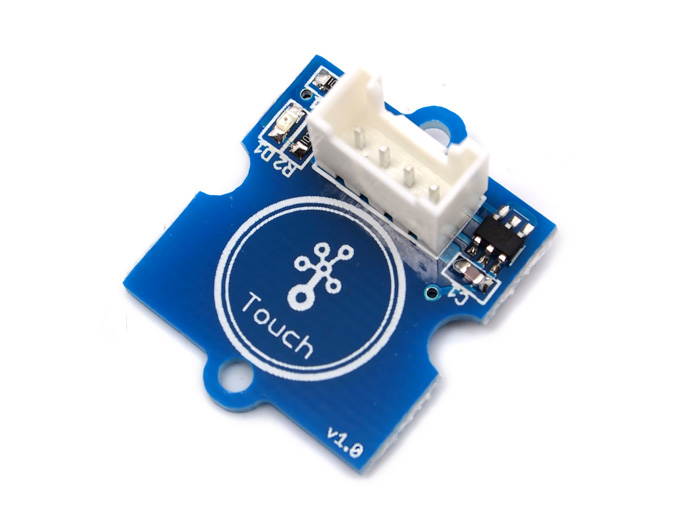
1pc Tessel Climate Module
Description
Detect humidity and temperature from your environment. Monitor your plants or exotic pets. Pull weather data from the internet and replicate a climate by hooking up relays to fan/heater/humidifiers.
FEATURES
Measure 0 to 70 °C (32 to 160 °F) with ±1° accuracy
Measure 0% to 80% relative humidity
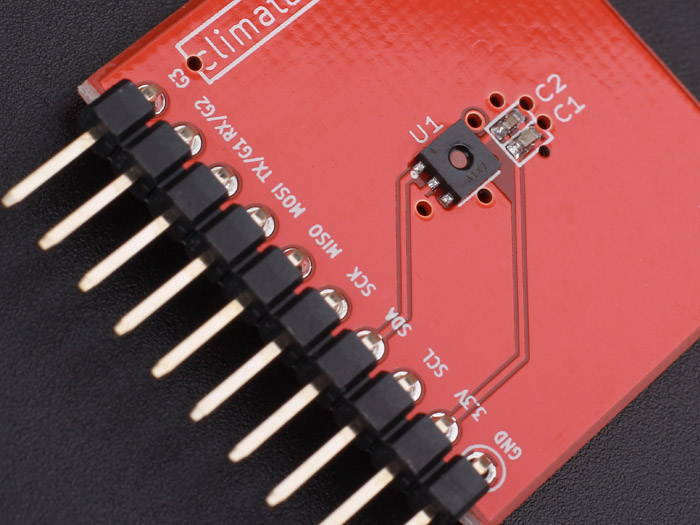
1pc BlueStack Micro+ (iOS version)
Bluestack board, supports DVMEGA raspberry Pi – boards (not included), both dual and single band. With the BlueDV app, you have access to:
via Bluetooth: DMR and Fusion, NO DSTAR!!
via Windows or Linux (USB): DSTAR, Fusion and DMR.
IOS version Bluetooth ONLY
- Switch activated (in), serial mode for Jonathan Naylor (G4KLX mode), MMDVM, BlueDV for Windows, or DVMEGA firmware upgrade mode via X-loadertool.
Note:new units will be switching off programming-mode after 1 minute. This is for MMDVM-mode. Older units; disconnect the wire on radio board after upgrade. Download the needed firmware for the DVMega board HERE!
- Switch de-activated (out), BlueDV mode, connecting to BlueDV App. BlueDV is an IOS app, so perfect to use as mobile hotspot!!
NOTE: NO DSTAR SUPPORT YET.
Unit is always powered through the micro usb, so use an adaptor or a battery-pack to power, or just power via the PC/USB-hub.
If you want BlueStack Andorid version, please visit here.
Technical Details
Dimensions 97mm x 80mm x 15mm
Weight G.W 13.5g
Battery Exclude
Part List
BlueStack Micro+ (Ios version) 1
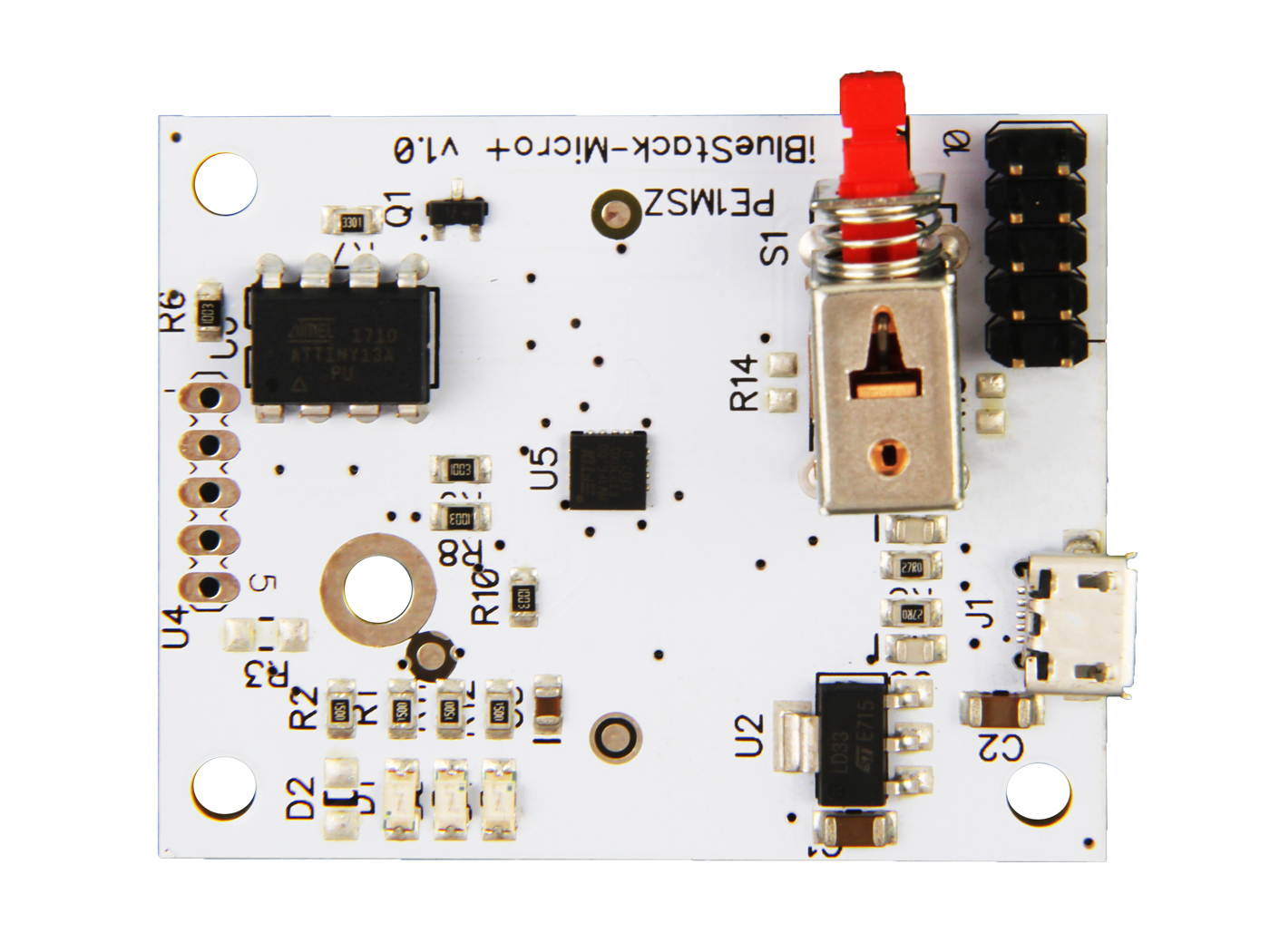
1pc Starter Shield EN(Tick Tock shield) v2
Description
This Starter Shield is a perfect choice for the beginners of Maker World. By playing with it, you can literally learn some basic skills that are required to be a maker, like soldering techniques, basic electronic circuit principles and programming skills. What? Afraid of soldering and programming? Don’t worry, we’ve prepared a very detailed Soldering Guide and fully supported library of programming examples from easy level to hard level, you can always find something useful in it.
Starter Shield contains most commonly used components like buttons, light sensors, temperature sensors, buzzer and display etc. Once you finish the soldering task, you’ll find out it’s actually a geek style alarm clock which can auto adjust the brightness of display and keep in synch with real world time. Yet, you have to connect it to an Arduino/Seeeduino board and download the code first.
Features
Soldering friendly through-holes
Alarm clock in geek style
All-in-one platform for beginners
Arduino/Seeeduino compatible
Part List
1x Buzzer 3V;
1x CAP Aluminum 100uF-16V;
1x Temperature Sensor-10k;
1x LS06-S phototransistor
4x RES 10K-5%-1/4W;
4x RES 220R-5%-1/4W;
3x RES 4.7K-5%-1/4W;
2x Blue Male Header VERT;
2x Blue Male Header VERT;
1x Blue Female Header VERT;
1x Lithium-ion Battery 3V-40mAh;
1x SMD Battery Cell Holder Plastic;
1x IC Driver;
1x RTC Clock/Timing;
2x IC Socket;
3x Button Top;
2x Black Round Female Header VERT;
1x LED Green-Green;
1x LED Blue-Blue;
2x LED Red-Red;
1x LED 7-SEG-Red;
1x Crystal 32.768KHz-12.5pF-20ppm-30K;
2x CAP Ceramic Disc 1nF-50V-20%;
1x CAP Ceramic Disc 100nF-25V;
1x Starter Shield Soldering Guide
1x Starter Shield PCB
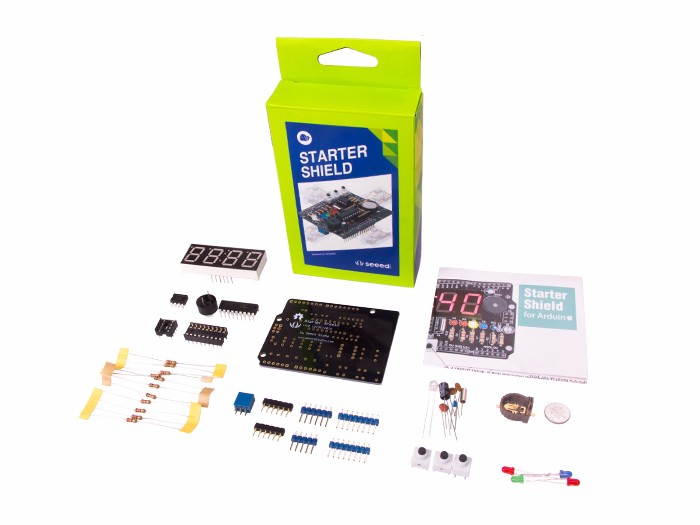
1PC Grove Base Shield for NodeMCU
Description
Grove Base Shield for NodeMCU is an extension board that help you to play with Grove sensors on an ESP8266 WIFI development kit which called NodeMCU. You can run Grove sensor with Lua script language in the NodeMCU firmware.
Features
Compatible with all Grove modules
5 Digital connectors (D3-D8)
1 Analog connectors (A0)
2 I2C sockets
NO SPI socket
UART/D9-D10 connector
Power indicator LED
Documents
Please visit our wiki page for more info about this product. It will be appreciated if you can help us improve the documents, add more demo code or tutorials. For technical support, please post your questions to our forum.
Technical Details
Dimensions 134mm x 64mm x 32mm
Weight G.W 40g
Battery Exclude
Part List
Grove Base Shield for NodeMCU 1
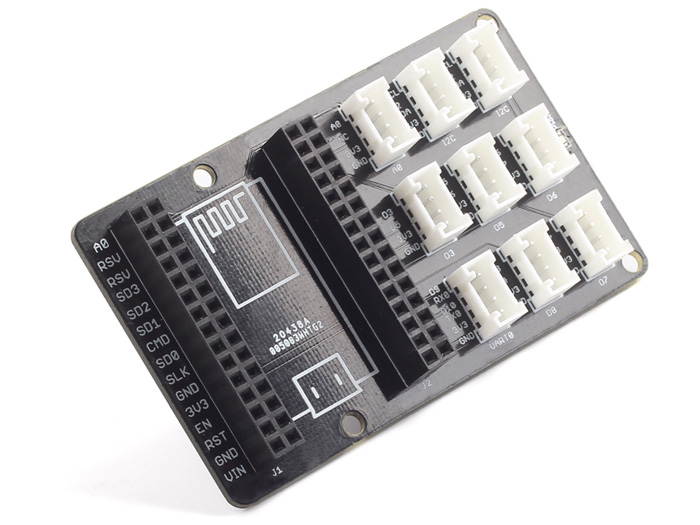
1PC Grove IoT Developer Kit
Part List
1xIntel® Edison for Arduino
1xGrove Starter Kit Plus - IoT Edison
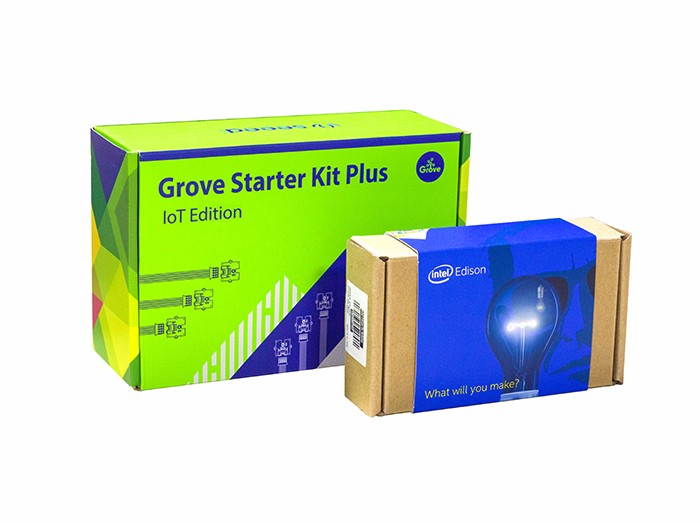
1pc Breakout for LinkIt Smart 7688
Description
Please consider Breakout for LinkIt Smart 7688 v2.0 as alternative product.
Breakout for LinkIt Smart 7688 is a Grove port integrated expansion board for LinkItTM Smart 7688 development board. This breakout board will save a lot of work and makes prototyping easier through simplified wiring. It will assist a beginner to get started fast. It supports serial buses like I2C, UART. It comes with USB, Ethernet and 3.5mm Audio ports.
LinkIt Smart 7688 (a compact controller board) is an open development board, based on the OpenWrt Linux distribution, MT7688. The board is designed especially to enable the prototyping of Rich IoT Application for Smart-Home.
Features
3.5mm headphone Jack(with Mic) for multimedia
1 x Ethernet to connect to internet
1 x USB 2.0 for more peripherals
Grove interface: 2 x UART, 1 x I2C
Stereo and AUX are supported
Specification
Input voltage: 5.0V (With USB Power port)
Operating voltage: 3.3V
Debug pins, Ethernet pins and USB type-A host pins connect with MT7688
DEMO
Demo
Demo - Smart WiFi Audio
It is a WiFi Audio which allows your mobile phone to connect to its WiFi and play the music in your phone. If you connect the Linklt Smart 7688 to your Router, the Audio will show the IP on the Grove RGB Backlight LCD, and also the song title.
Learn more at our Recipe.
Documents
Please visit our Wiki page for more info about this product. It will be highly appreciated if you can help improve the documents, add demo codes or tutorials. For technical support, please post your questions to our Forum.
Technical Details
Dimensions 135mm x 65mm x 30mm
Weight G.W 49g
Battery Exclude
Part List
Breakout for LinkIt Smart 7688 1
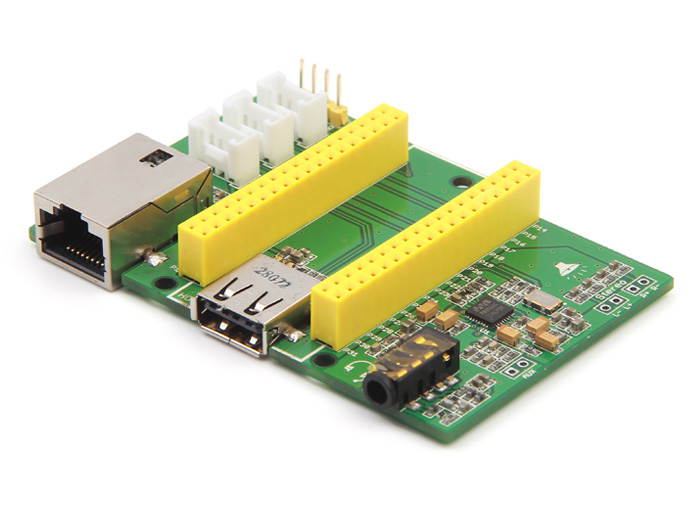
1PC Grove - LED Matrix Driver v1.0
Description
The Grove – LED Matrix Driver v1.0 can be a nice helper when you need to driver a dual color LED matrix. It is built around the neat little chip STM32F103C8T6, which works at a frequency of 72MHz and very low power consumption. You can use the drivers to control a LED matrix sized at 64x32 or 32x16. And as though we’ve prepared handy and easy-to-use libraries, you only need to write few lines of code to get it working quickly and display whatever you wish.
Wiring is quite simple as well. Connecting the driver to your development board to the onboard UART interface with a Grove 4-pin cable and to your LED panel through the 16 Pin DBSTAR_HUB08A Header connector, and then you are ready to roll.
Features
Easy to use
Supports 64x32 and 32x16 dual color LED Matrix
Panel-mounting Grove interface
Documents
For libraries and documents, please visit our Wiki page.
For technical discussion, please come to our Forum.
For projects that you would like to share with the community, please visit Recipe.
Technical Details
Dimensions 20mm x 20mm x 15mm
Weight G.W 16g
Battery Exclude
Operating Voltage 5V – 3.3 V
Typical Operating Current 32 mA
Microcontroller STM32F103C8T6
Grove Port UART
Interface to LED Matrix 16 Pin DBSTAR_HUB08A Header Connector
Dimensions 46.5mm x 4mm
Part List
Grove - LED Matrix Driver v1.0 1
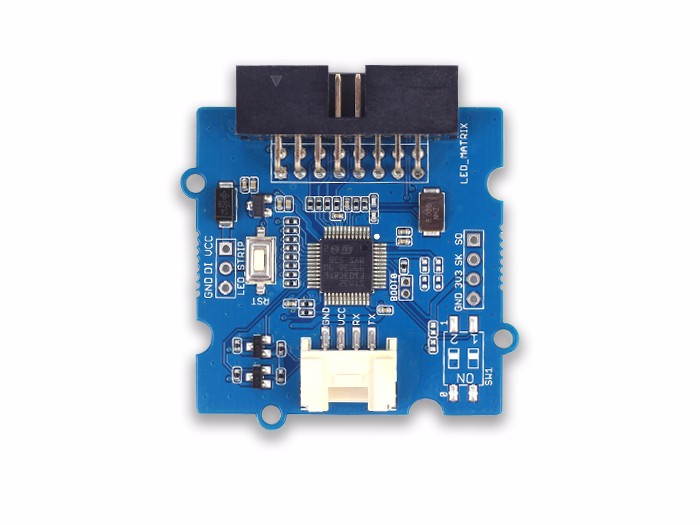
1pc Tessel IR Module
Description
The Infrared (IR) Module can send and detect IR signals.
Use a Tessel as a remote for your TV, radio, or even another Tessel.
Features
Transmits and receives from 30+ feet (line of sight)
Detects max 38kHz
IR Receiver
IR LED
Technical Details
Dimensions 100mm x 60mm x 10.6mm
Weight G.W 5g
Battery Exclude
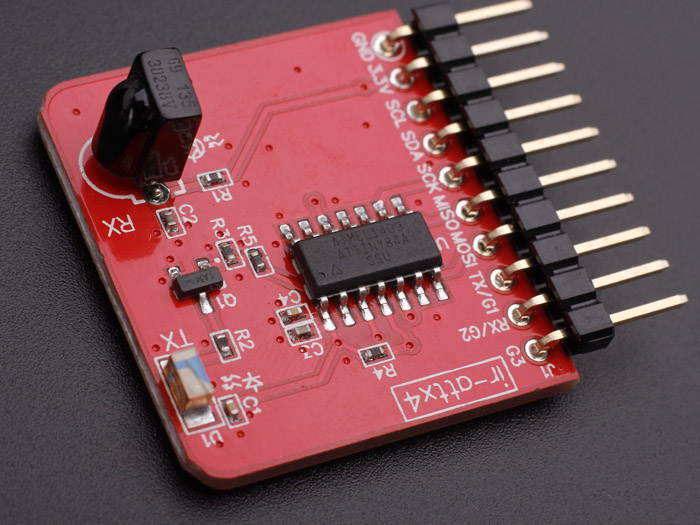
SeeedStudio LTE-M Antenna for Pycom
-External LTE-M Antenna Kit for use with the FiPy and GPy development boards.Specification¨C Lte band 28/38*2¨C Frequency: 703~803/2520~2620(MHz)¨C Antenna size: 75 x 21 (mm)¨C PCB 0.6 mmLow Bands¨C (5, 8, 12, 13, 18, 19, 20, 28)¨C Tx frequencies 699 to 915 MHz¨C Rx frequencies 729 to 960 MHzMid Bands¨C (1, 2, 3, 4)¨C Tx frequencies 1710 to 1980MHz¨C Rx frequencies 1805 to 2170 MHz
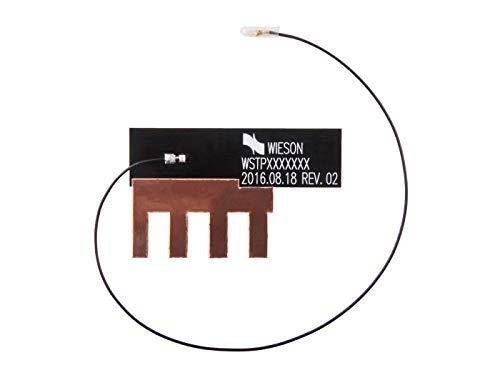
1pc Pimoroni Automation pHAT
Automation HAT's little bro'. The most compact way to take control of and monitor your world!
We've pulled together a great set of features into this home monitoring and automation controller. With a relay, analog channels, powered outputs, and buffered inputs (all 24V tolerant) you can now hook up a plethora of goodies to your Raspberry Pi all at once.
Ideal for smart home and automation projects, giving your greenhouse intelligent sprinklers, or scheduling your fish feeding!
Features
1 x 24V @ 2A relay (NC and NO terminals)
3 x 12-bit ADC @ 0-24V (ADS1015)
3 x 24V tolerant buffered inputs
3 x 24V tolerant sinking outputs
3.5mm screw terminals
SPI pins broken out
Automation pHAT pinout
Compatible with Raspberry Pi 3, 2, B+, A+, Zero, and Zero W
Python library
Female header and broken out pins require soldering
Software
As ever, we've made a super-simple to use Python library to take advantage of Automation pHAT's multitudinous functions, with examples to get you started.
In fact, Automation pHAT uses the same library as Automation HAT, and it uses the presence (or absence) of the SN3218 LED driver chip to autodetct which board (HAT or pHAT) is being used. Nifty!
Our input, output and relay examples show you how to read the analog and digital inputs, switch the outputs on and off, and control the relay.
Our software does not support Raspbian Wheezy.
Notes
Loads for the buffered outputs should be switched on the ground side, i.e. 12/24V (from supply) -> load -> output terminal -> ground (from supply)
The relay can tolerate up to 2A each and should be switched on the high side
The sinking outputs can sink a maximum 500mA total across the 3 outputs, so if you use a single channel you can sink the whole 500mA across it.
Do not use to switch mains voltages!
Technical Details
Dimensions 65mm x 30mm x 10mm
Weight G.W 20.5g
Battery Exclude
Part List
Automation pHAT 1
3.5mm screw terminals 1
2 x 20 pin female header 1
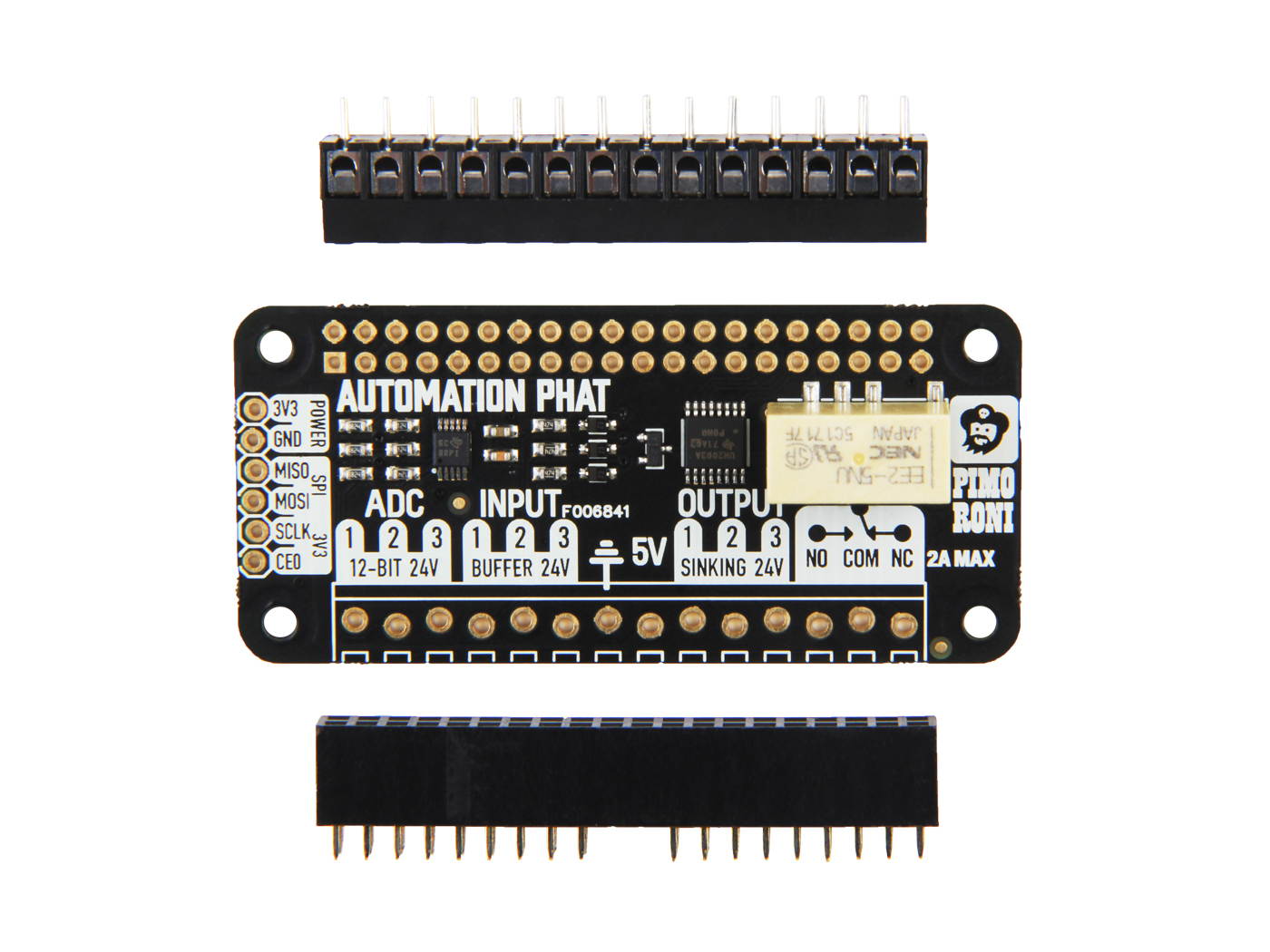
SeeedStudio EMW3166 WiFi Module(External IPEX Antenna)
-EMW3166 is one embedded Wi-Fi module of low-power, small-size and low-cost designed by MXCHIP. It integrates one Cortex-M4 microcontroller of 256Kbytes SRAM and 1Mbytes on-chip flash with another 2Mbytes on-board SPI flash added. Various peripheral interfaces of analog and digital are available. The power supply voltage is 3.3V. It applies half-hole footprint for hand-soldering. The module runs MICO, which is the IOT OS System of MXCHIP, and is available for secondary development. The TCP/IP protocols and security encryption algorithm could be applied in various Wi-Fi applications. In addition, several particular firmware prepares for some typical applications, like UART to Wi-Fi DTU, easylink configuration and services for cloud interfacing.FeaturePropertiesIntegration of one Cortex-M4 MCU and one RF chip of 802.11 b/g/nCortex-M4 core at 100MHz2M bytes on-board SPI flash and 1M bytes on-chip flash256K bytes SRAMOperation voltageLow voltage mode: 2.3~3.0VNormal voltage mode: 3~3.6VPeripherals25 GPIOSJTAG/SWD debug interfacesWi-Fi connectivity:802.11 b/g/n availableWEP, WPA/WPA2, PSK available16.5dBm@802.11b, 14.5dBm@802.11g, 13.5dBm@802.11nReceiver Sensitivity: -87dBmStation, Soft AP and Wi-Fi DirectEasylink availableOn-board PCB antennaCE, FCC compliantOperation Temperature-30¡ãC~+85¡ãCApplication scenariosAuto electronicsPoint of Sale systemIndustrial automation systemsMedical/Health careSmart home appliancesSmart LED
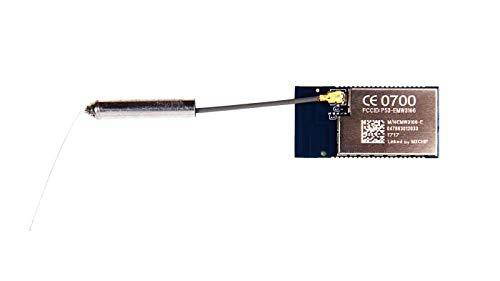
1pc Pimoroni pHAT DAC
If music be the food of love, play on. But make sure you use this super little DAC to get the best out of your Raspberry Pi audio!
This pHAT provides a super affordable high-quality DAC for your Raspberry Pi. It pumps out 24-bits at 192KHz from the Raspberry Pi's I2S interface on its 2x20 pin GPIO header.
Use pHAT DAC to build a tiny, lush-sounding streaming music device, or use it with Scroll pHAT to make a beautiful spectrum analyser!
Features
24-bit audio at 192KHz
Line out stereo jack
Optional landing for dual RCA phono connector
PCM5102A DAC over the Raspberry Pi's I2S interface
pHAT DAC pinout
Compatible with Raspberry Pi 3, 2, B+, A+, Zero, and Zero W
Female header requires soldering
Software
pHAT DAC doesn't require a Python library like most of our other HATs and pHATs, but does require configuration to work properly. We've put together a slick one-line installer to get everything set up just right. See the tutorial below for more details.
Our software does not support Raspbian Wheezy.
Technical Details
Dimensions 65mm x 30mm x 10mm
Weight G.W 13g
Battery Exclude
Part List
pHAT DAC 1
2 x 20 pin header 1
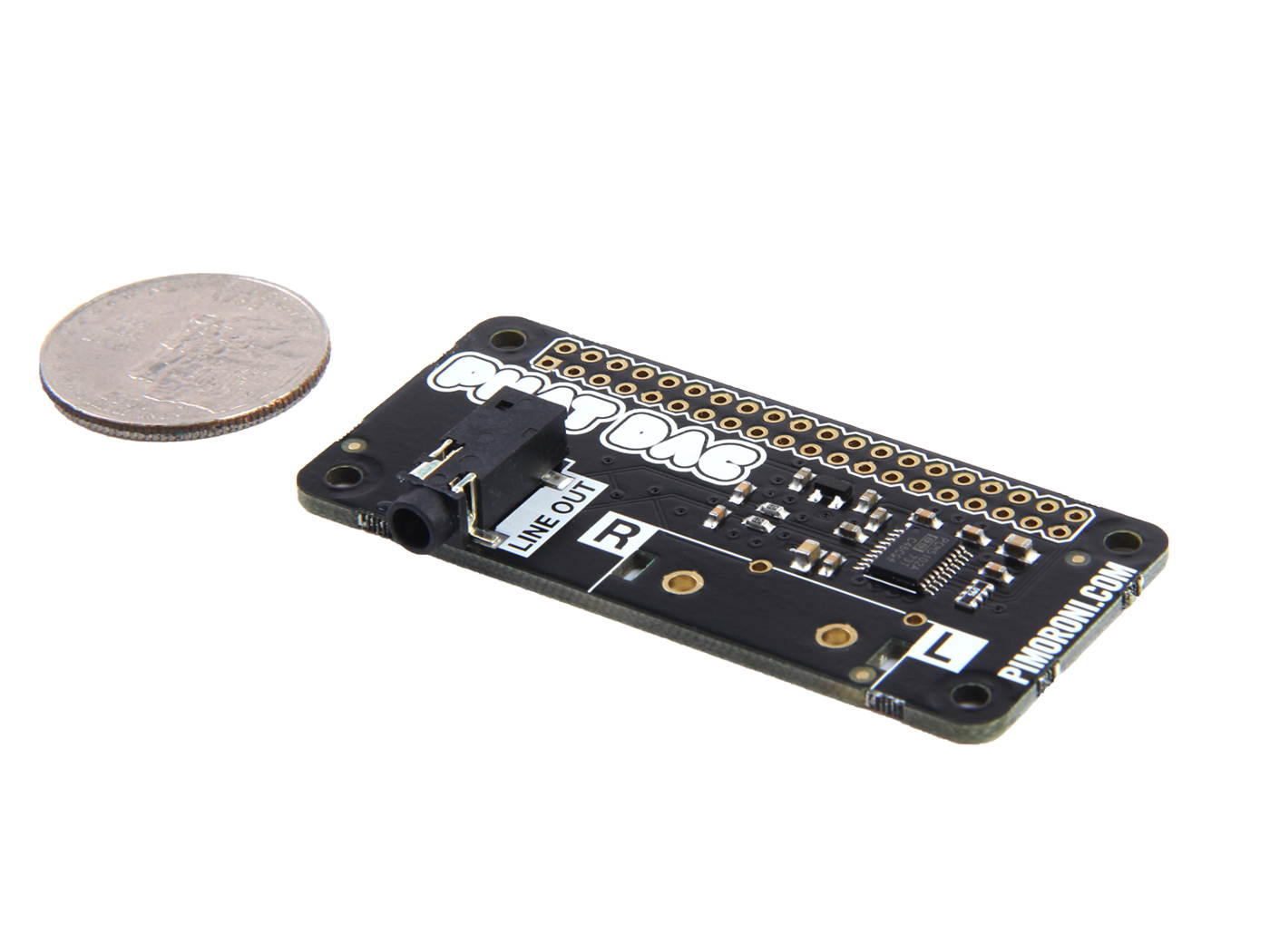
1pc P0 - Particle Wi-Fi Module
The PØ is Particle’s tiny Wi-Fi module that powers the Photon that contains both the Broadcom Wi-Fi chip and a reprogrammable STM32 32-bit ARM Cortex-M3 microcontroller. The PØ comes preloaded with Particle firmware libraries, just like our dev kits, and it’s designed to simplify your transition from prototype to production. Every PØ includes free cloud service.
Features
Particle PØ Wi-Fi module
-Broadcom BCM43362 Wi-Fi chip
-802.11b/g/n Wi-Fi
-STM32F205 120Mhz ARM Cortex M3
-1MB flash, 128KB RAM
-RF avg. output power (max)
b / g / n, 16.5dBm / 15.0dBm / 14.5dBm (+/-1.5dBm)
18 Mixed-signal GPIO and advanced peripherals
Open source design
Real-time operating system (FreeRTOS)
Soft AP setup
FCC, CE and IC certified
Technical Details
Dimensions 12mm x 11mm x 2mm
Weight G.W 5g
Battery Exclude
Part List
P0 Wi-Fi module 1
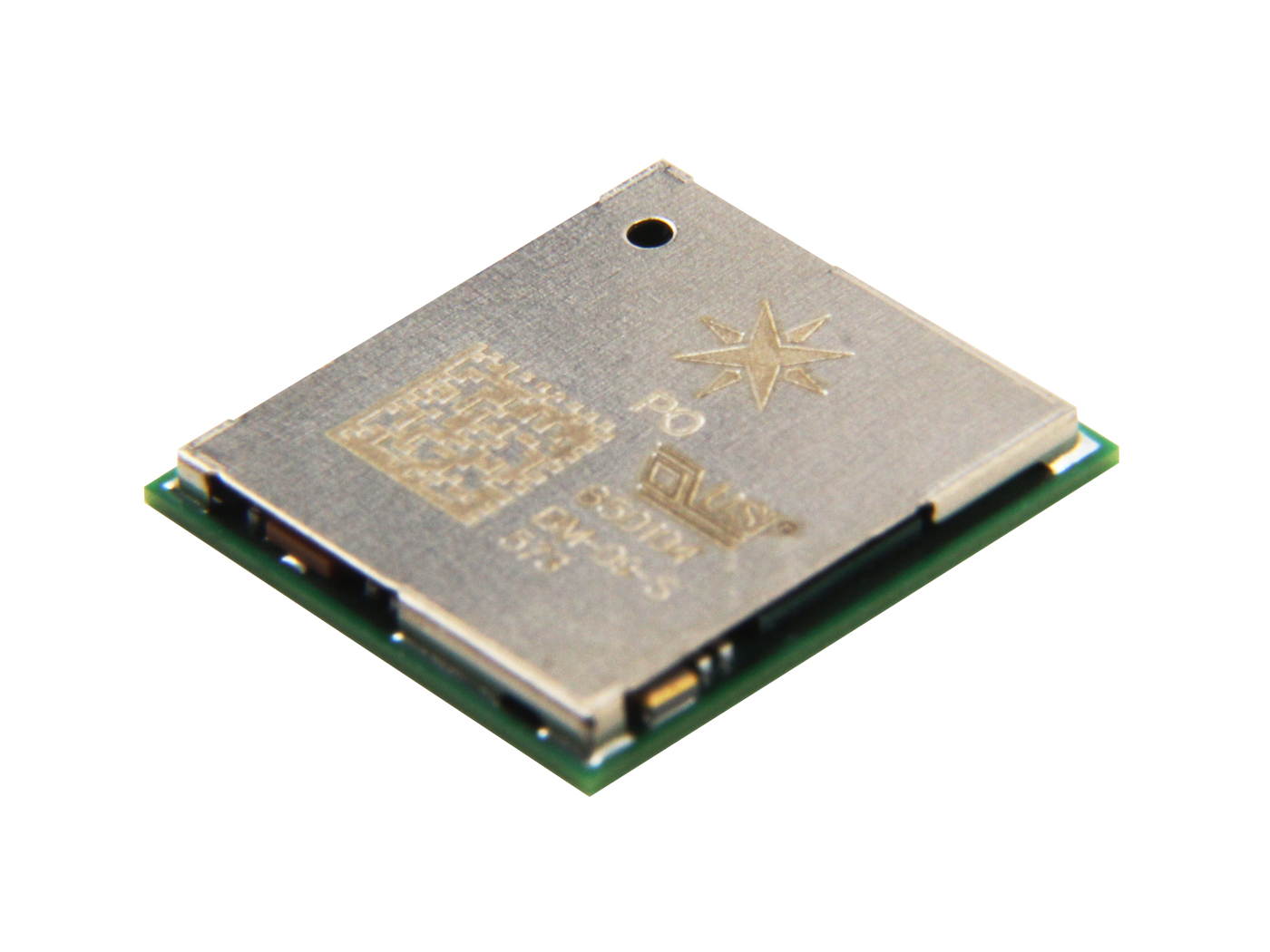
1pc ReSpeaker Core - Based On MT7688 and OpenWRT
Description
ReSpeaker-Core
ReSpeaker is an open modular voice interface to hack things around you. Let you interact with your home appliances, your plant, your office, your internet-equipped devices or any other things in your daily life, all by your voice.
ReSpeaker-Core
It’s a voice-enabled extension for your surroundings
ReSpeaker supports both online cognitive services and offline lightweight speech recognition engine. You can add ReSpeaker to things around you to make them smart(smarter).
ReSpeaker-Core
It’s a device for music streaming
Voice interface has never been apart from music entertainment, so does ReSpeaker. ReSpeaker supports Airplay/DLNA for wireless music streaming. Just connect ReSpeaker to any ordinary speaker with an AUX cable, then you can start enjoying the music you love without pressing a single button.
ReSpeaker-Core
It’s a learning tool for kids
Rather than the on board MT7688 Wi-Fi module which runs the Linux based OpenWrt, ReSpeaker is also powered by the ATmega32u4 chip and absolutely Arduino compatible, which means, we can use ReSpeaker as a powerful Arduino board and do many ‘Arduino’ things. It’s for learning, it’s for practicing, and it’s for fun.
ReSpeaker-Core
Installation-free APP For Everyone
The exposed PCB design does not mean ReSpeaker is just for people who knows a lot about hardware or software.
ReSpeaker uses a user-friendly Web-based App that can be set up by anyone in just minutes. In the App you can access a range of rich featured applications that ReSpeaker has provided, includes music streaming, file manager, plug-in, customized settings and more. Click the image below to visit the web app or directly go to: respeaker.io
ReSpeaker-Core
Always-growing Features
The plug-in system is specially designed for the users to share and download their voice interactive projects as a simple plug-in to the ReSpeaker module. It has significantly simplified the use of ReSpeaker as anyone who has a ReSpeaker can install the plug-ins they want with a single click, and after that they can run voice interaction just like any others.
ReSpeaker-Core-????-v2--__--007.jpg
Developer-friendly
Developers can of course achieve more with the SDK we provide to develop their own voice interaction projects.
ReSpeaker-Core-????-v2--__--008.jpg
ReSpeaker-Core-????-v2--__--009.jpg
Modular Design and Extendable Add-ons
The far-field MIC Array allows your ReSpeaker to be able to recognize your location and hear you from across the room even while the music is playing.
And the Grove extension board brings even more possibilities as you can connect various Grove sensors and actuators to extend its capabilities. The two onboard expansion headers also offer I2S, I2C, AUX, USB 2.0, GPIOs and many other interfaces that you can use for more applications.
Technical Details
Dimensions 148mm x 100mm x 32mm
Weight G.W 17g
Battery Exclude
Part List
ReSpeaker Core 1
8G Class 10 Micro SD Card 1
200mm micro usb cable 1
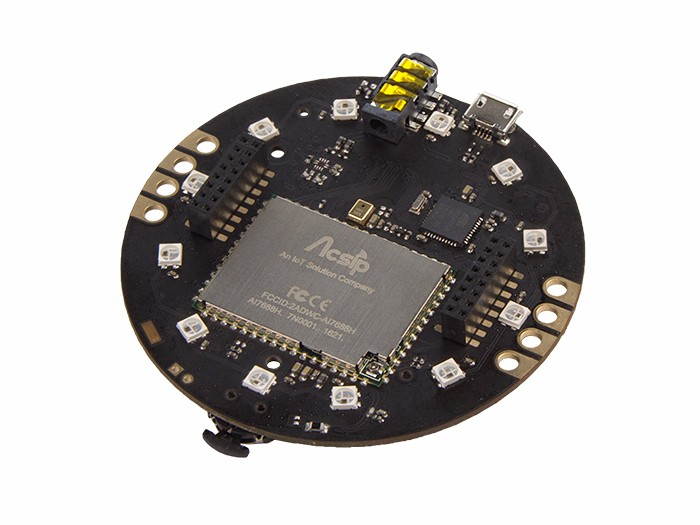
1pc Grove Breakout for LinkIt Smart 7688 Duo
Description
Grove Breakout for LinkItTM Smart 7688 Duo is a Grove port integrated and a feature expansion board for LinkItTM Smart 7688 Duo development board. This breakout board will save a lot of work for quicker prototyping, especially for novices through simplified wiring procedure. So it will help a beginner get a quick start. It supports serial buses like I2C, UART and provides access to reserved original pins of LinkItTM Smart 7688 Duo.
LinkIt Smart 7688 Duo(a compact controller board) is an open development board, based on the OpenWrt Linux distribution, MT7688 and ATmega32u4. The board is designed especially to enable the prototyping of Rich Application IoT devices for smart house.
Features
Grove interfaces: I2C × 3, Analog× 3, Digital× 6
Specification
?Input voltage: 5.0V(With USB Power port)
Operating voltage: 3.3V
Debug pins conect with MT7688
Other pins connect with ATmega32U4.
DEMO
Demo
Facebook Likes Reminder
It will remind you when you have a new 'like' on your facebook page. The device will vibrate,the lights will twinkle, while the screen will show the real-time facebook likes.Learn more at our Recipe.
Documents
Please visit our Wiki page for more info about this product. It will be highly appreciated if you can help improve the documents, add demo codes or tutorials. For technical support, please post your questions to our Forum.
Technical Details
Dimensions 135mm x 65mm x 34mm
Weight G.W 44g
Battery Exclude
Part List
Grove Breakout for LinkIt 7688 Duo 1
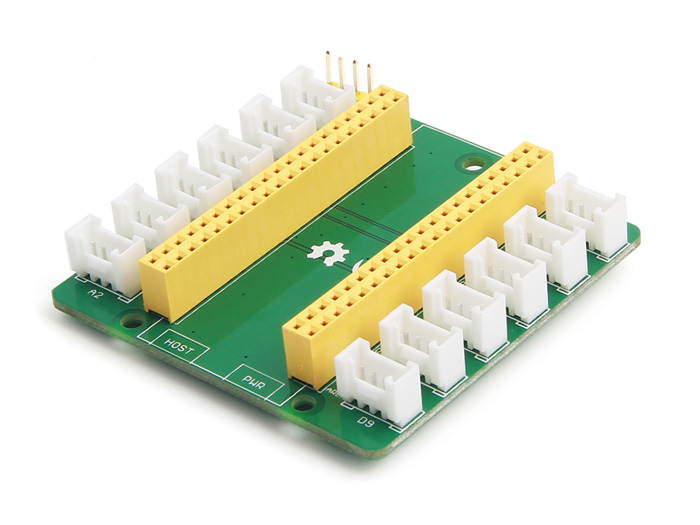
Seeed Wi-Fi Bee V2.0 Module Compatible with any Bee Socket - Blue + White
Wifi Bee v2.0 module incorporates 802.11 b/g radio, 32 bit processor, TCP/IP stack, real-time clock, crypto accelerator, power management unit and analog sensor interface. It can directly plug into the Bee sockets and use the UART port for communication. You can also use AT command for advanced configuration to meet your unique requirement.
Specification:
Compatible with any Bee socket;
Host interface UART;
Transmit power: 0dBm to 12dBm;
Frequency: 2402~2480MHz;
Channel: 0~13;
Integrated TCP / IP protocol stack;
On-board Multilayer Chip Antenna.
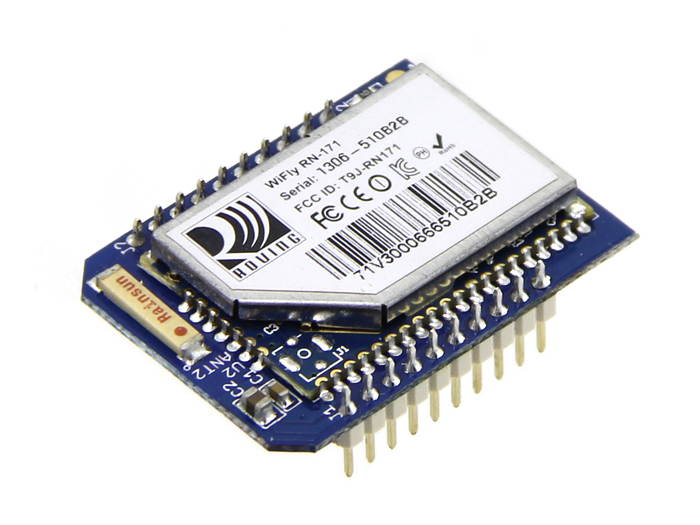
1PC 96Boards UART
This adapter is a USB to UART interface to be used with any base board compatible with the 96Boards Consumer Edition or Enterprise Edition specifications.
It makes it easy to connect your PC to the serial console on the 96Boards low-speed expansion connector, without worrying about pinout or level shifting for 1.8V IO. It also provides remote control of the power button and reset signals so that the base board can be completely controlled over a single USB cable.
Since it uses the FT230X chip from FTDI, when it is connected to your PC over USB, it appears as a normal UART interface on a PC, Macintosh or Linux computer with an FTDI UART driver installed
Features
Attaches to 96Boards low-speed (LS) expansion connector
FT230X USB to UART adapter chip
USB bus powered. Doesn‘t disconnect when base board power is cycled
Switchable between LS UART0 and UART1. (UART1 is the default console)
CTS/RTS with using UART0
TX and RX LEDs
Remote control of baseboard reset and power signals
Base board reset button
TX and RX LEDs
User LED connected to GPIOB (GPIOA on v1.0 of the adapter)
Tech support
This product is desiged by 96 boards, For any technical support or suggestion, please kindly go to their forum.
Technical Details
Dimensions 80mm x 120mm x 19.6mm
Weight G.W 6g
Battery Exclude
Part List
96Boards UART (part # 96B-05UART-V1.1) 1
2mm shunts 2
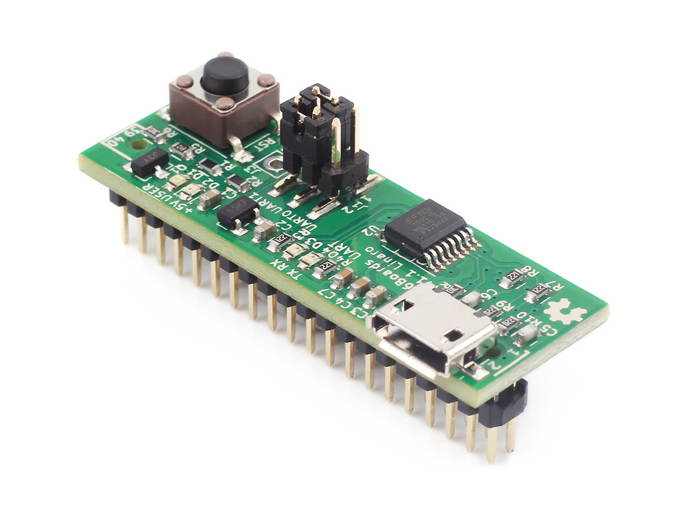
1pc Pimoroni Mood Light - Pi Zero W Project Kit
A beautifully modern Mood Light that'll look great on your bedside table, bookcase, or desk, and it's internet-connected!
Our Mood Light Kit has everything* you'll need to build a sleek looking light that evokes a real pendant light, and uses our Unicorn pHAT board with 32 programmable RGB Neopixel LEDs. Set it to a single colour, have it fade through all the colours of the rainbow, or harness the built-in wireless LAN on the Pi Zero W. It'll take around 30 minutes to assemble everything** (check out our assembly guide for details).
Mood Light uses our popular Unicorn pHAT board, with 32 programmable RGB Neopixel LEDs, giving you a veritable rainbow full of colour possibilities. The stand cleverly mounts the Pi Zero W and Unicorn pHAT at just the right angle to cast the light through the pendant light cutout and diffuse it beautifully.
The built-in wireless LAN on the Pi Zero W opens up a wealth of opportunities: connect it to your Twitter feed and track the mood of your recent tweets, or fade through the sunset and sunrise colours once you've pulled the daily sunset/sunrise times from your favourite weather server.
Note that this is a soldering project.
Features
8x4 matrix of programmable RGB Neopixel LEDs
3-layer white and yellow pendant light stand and diffuser
Pi Zero W with single core CPU and built-in wireless LAN and Bluetooth
Adaptor kit
50cm USB A to micro-B cable (power your Pi from an existing charger or computer)
Python library
Female and male headers require soldering
Technical Details
Dimensions 145mm x 90mm x 40mm
Weight G.W 290g
Battery Exclude
Part List
Clear frosted front layer 1
Yellow lamp fitting insert 1
White middle layer 1
White back layer 1
White leg retainers 2
White legs with rubber feet attached 2
M3 white nylon bolts and nuts 6
M2.5 white nylon bolts and nuts 4
Pi Zero W 1
Unicorn pHAT with 32 programmable RGB Neopixel LEDs 1
Male and female 2x20 pin headers 1
White and yellow pendant light stand and diffuser 1
50cm USB A to micro-B cable 1
USB A (female) to micro B (male) adaptor 1
Mini to full-size HDMI adaptor 1
Sticker sheet (personalise your Mood Light!) 1
Comes in a reusable kit box 1
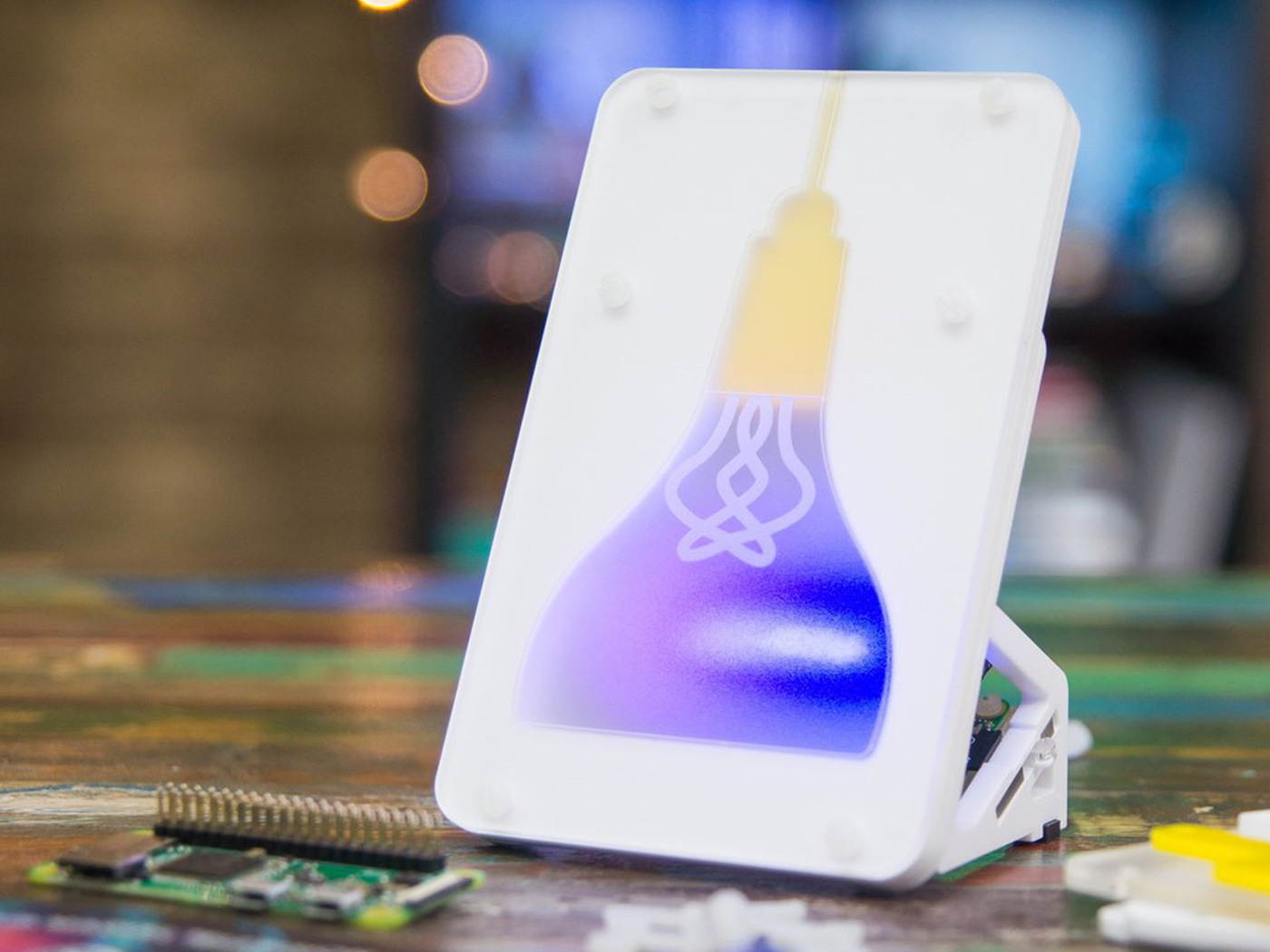
1pc Pimoroni Enviro pHAT
Enviro pHAT packs 4 different sensors, letting you measure temperature, pressure, light level, colour, 3-axis motion, compass heading, and analog inputs. That's up to 10 different variables! It's ideal for monitoring conditions in your house, garage, or galleon. Set up a web server with Flask and remotely monitor everything from anywhere. Combining Enviro pHAT with our other HATs and pHATs gives almost endless possibilities: display sensor values on Unicorn pHAT, use Display-O-Tron HAT to display sensor data, display a graph of values with Scroll pHAT, and much, much more. The MagPi gave Enviro pHAT five stars and called it a "fun, easy-to-use add-on with plenty of possibilities". Features BMP280 temperature/pressure sensor TCS3472 light and RGB colour sensor Two LEDs for illumination LSM303D accelerometer/magnetometer sensor ADS1015 4-channel 3.3 v, analog to digital sensor (ADC) Enviro pHAT pinout Compatible with Raspberry Pi 3, 2, B+, A+, Zero, and Zero W Python library Female header and ADC male header require soldering Software We've put together a comprehensive Python library to make using Enviro pHAT really simple, as well as examples of motion detection and temperature threshold triggering. Our software does not support Raspbian Wheezy. Technical Details Dimensions 65mm x 30mm x 10mm Weight G. W 13g Battery Exclude Part List ENVIR pHAT 1 2 x 20 pin female header 1 6 pin header 1
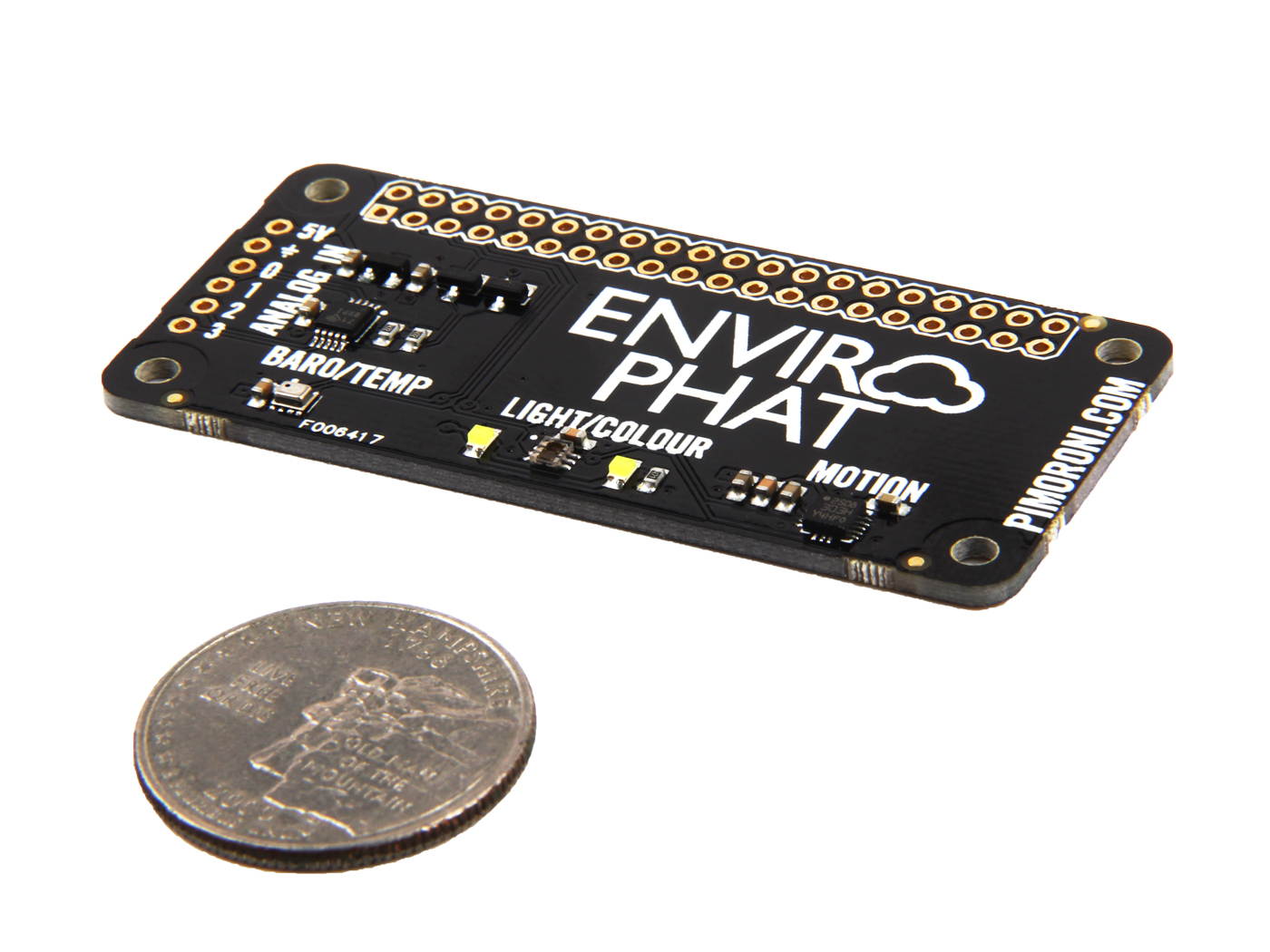
1pc RePhone Extension Pack
Description
The RePhone Extension Pack includes 6 rich-featured add-on modules for you to extend the functionalities of your RePhone project. The pack includes Xadow LED 5x7, Xadow NFC v2, Xadow Duino, Xadow GSM Breakout, Xadow Basic Sensors and Xadow GPS v2.
Features
Slim and small modular design
Stackable and chainable
Xadow Basic Sensors, Xadow LED 5x7 and Xadow Duino have Plug and play feature with RePhone Kit • Create
Documents
Please visit our wiki page for more info about this product. It will be appreciated if you can help us improve the documents, add more demo code or tutorials. For technical support, please post your questions to our forum.
Technical Details
Dimensions 200mm x 144mm x 20mm
Weight G.W 149g
Battery Lithium Cells/Batteries packed with equipment UN3481 -PI966
Part List
Xadow Basic Sensors 1
Xadow GPS v2 1
Xadow NFC v2 1
Xadow LED 5x7 1
Xadow Duino 1
Xadow GSM Breakout 1
Battery 520mAh 1
FPC Cable 35 PIN 1
FPC Cable 11 PIN 1
RGBLED WS2812B strip 1
Solid wires for WS2812B & Xadow Duino 1
User Guide 1
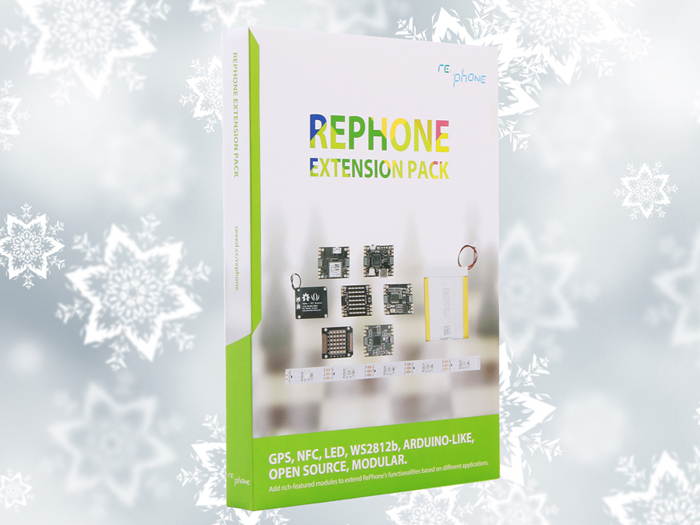
1pc OBD-II CAN-BUS Development Kit
This kit allows you to interface with your vehicle's OBD-II interface. The kit includes a Serial CAN-BUS module as well as a OBD-II Connector, with this kit you can get data from your vehicle easily. We provide an tutorial which is based on Arduino. OBD-II (short for On-Board Diagnostics, Second Generation) is a set of standards for implementing a computer based system to control emissions from vehicles. It was first introduced in the United States in 1994, and became a requirement on all 1996 and newer US vehicles. Other countries, including Canada, parts of the European Union, Japan, Australia, and Brazil adopted similar legislation. A large portion of the modern vehicle fleet supports OBD-II or one of its regional flavors. Features *Up to 1Mb/s CAN-BUS rate *DIY kit *Multi-platform avaiable (Arduino, Raspberry, Beaglebone Board, etc. ) *Serial Communication *Tutorial for Arduino Note: The kit don't include a controller board.
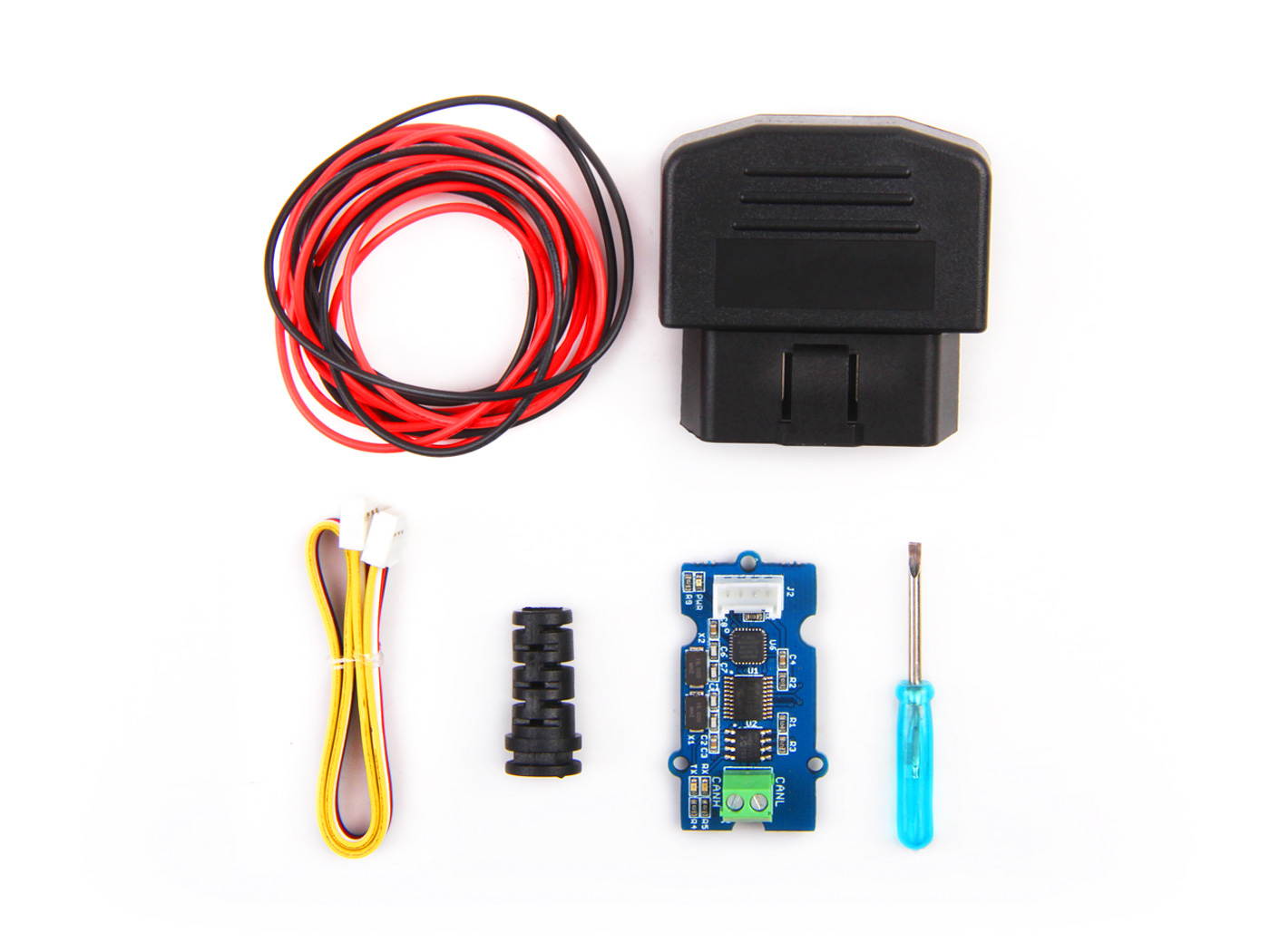
1pc RF Explorer Upconverter
RF Explorer Upconverter is a high performance RF frequency mixer to enable input frequency ranges from 100KHz to 250MHz in RF Explorer Spectrum Analyzer and other devices such as SDR and wideband radios. UPCONVERTER. png RF Explorer Upconverter is a multi-purpose device: * Includes an Upconverter Mixer to enable frequencies 100Khz - 250MHz in your RF Explorer Spectrum Analyzer or other devices such as RTL-SDR and converts into 530.1 -780MHz * Internal selectable Low Noise Amplifier of 25dB gain nominal, to increase sensitivity of receivers, Spectrum Analyzers, Oscilloscopes and Near Field antennas in frequencies 100KHz - 4GHz * Internal selectable Attenuator 30dB nominal to enable large signal measurement Features * Internal LNA amplifier and selectable attenuator *In Mixer mode convert frequencies from input 100KHz-250MHz up to 530.1 -780MHz output *In Bypass mode it can work in frequencies from 50KHz to 4GHz including LNA and Attenuator *Compact size and light weight *Solid aluminum metal case *Mini USB port is used for powering the unit DC 5V, easy connection to a PC, wall wart or even portable power bank battery. *Easy connection to RF Explorer with included RF adapter SNA Male-Male *Ideal device to amplify weak signals using RF Explorer Near Field antennas For more details about user guide and coding, please visit Upconverter site link. Technical Details Dimensions 120mm x 77mm x 26mm Weight G. W 95g Battery Exclude Input Frequency band Mixer Mode 0.1 – 250MHz Input Frequency band: Bypass Mode 0 – 4GHz LNA Frequency band 0 – 4GHz Attenuator Frequency band 0 – 4GHz Internal selectable LNA 25dB gain Internal selectable Attenuator 30dB Connectors Standard SMA 50 ohms RF connectors Absolute Max input power Bypass and Attenuator mode +30dBm Absolute Max input power LNA mode +5dBm Mixer stability and accuracy (typical) +-10ppm Part List RF Explorer Upconverter 1 SMA Male-Male adapter 1
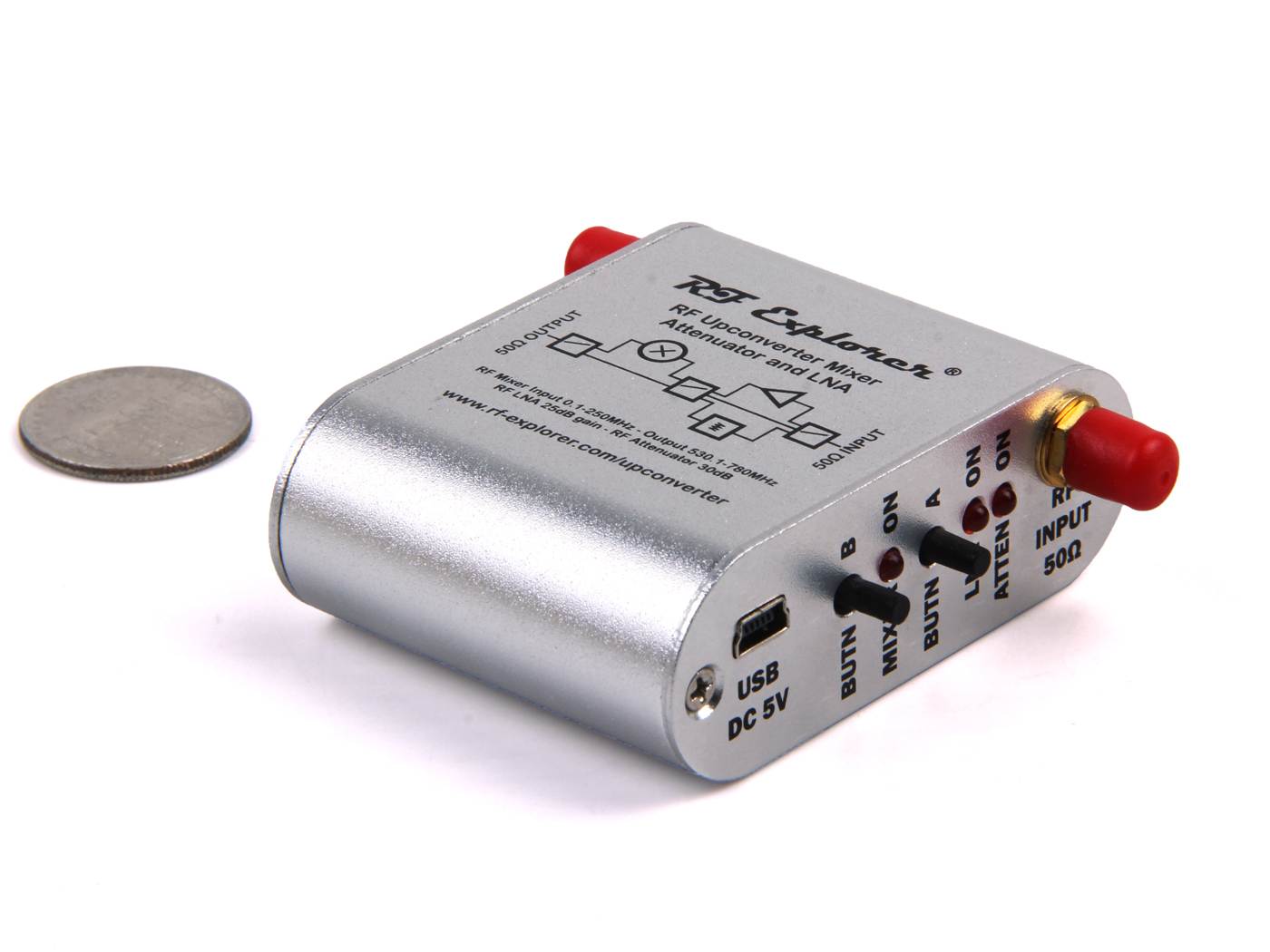
Seeedstudio 1pc ATX breakout board bench power supply
Description Recycle an ATX computer power supply into a beefy bench tool that powers your projects. The ATX breakout board routes the -12, 3.3, 5 and 12 volt ATX outputs to screw terminals, each protected by a 1.25 amp resettable polyfuse. These four voltages cover many common electronics needs, there's even a negative voltage (-12 volts) for op amps and audio projects. An on/off button and a control circuit are included on-board, no modifications to the ATX supply are needed. Features -12, 3.3, 5, 12 volt supplies @ 1.25 amp 1.25 amp polyfuses with reset on each power rail Indicator LEDs show that each rail is working Power good and enabled indicator LEDs On-Off button and control circuit Optional load resistor included but NOT soldered Open source (CC BY-SA) Note: A 9 Watt load resistor is included but not soldered to the board. In our experience most modern ATX supplies don't require a significant load on the 5 volt rail to start. An artificial load just wastes electricity and creates unnecessary heat. Please let us know your experience. Some special ATX supplies provide -5volts, but the vast majority don't. We broke it out and added the fuse, but didn't populate the screw terminal. Resources Documentation Design overview Discussion forum If you encounter any problems when using this product, here is the forum from which you can get the technical support.
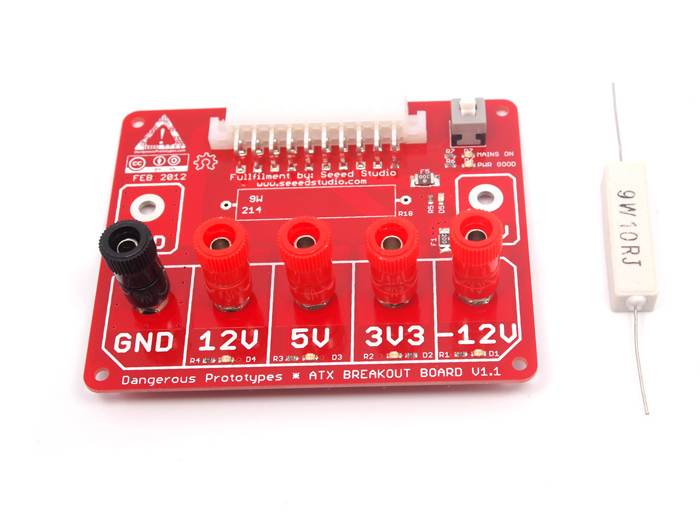
10pcs/set Grove - Universal 4 Pin Connector
Grove - Universal 4 Pin connector is the white 4-pin buckled connector used on Stem, Twigs and the Grove cables, the pin spacing is 2mm. There are 10 connectors per bag, Users can use them to DIY. Documents Please visit OPL page for more info about this product. It will be appreciated if you can help us improve the documents, add more demo code or tutorials. For technical support, please post your questions to our forum Technical Details Weight G. W 4g Battery Exclude
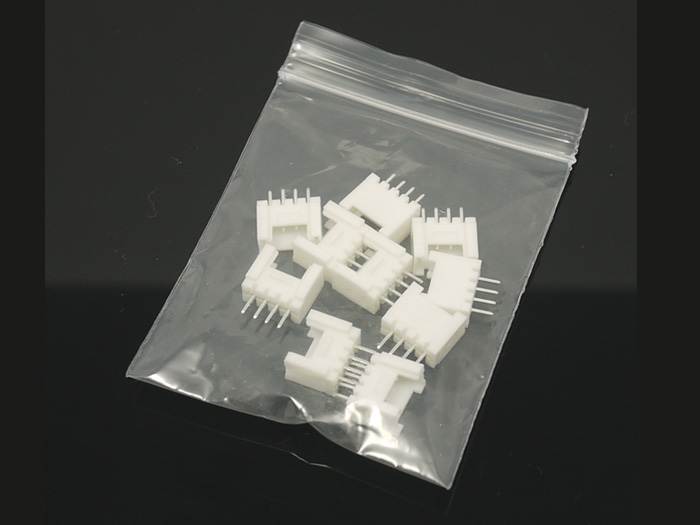
1pc Wio Link Bootcamp Kit
Description
Wio Link
If you have no bits of programming skill, and you want to build some cool gadgets for your life, this kit will be a perfect starter. It contains a relay, a recorder, a strip of LEDs, a buzzer and a servo motor which will perform basic actions required in daily life. The most amazing part of this kit is the Wio Link development board which can be utilized for various devices: without a bit programming skill required. All the actions you want your modules performed and the flashing code operation to Wio Link could be completed with taps in a mobile app. And you can send instructions to your devices over Internet at anywhere. So Wio Link will be a perfect utility to making things around smarter for everyone. Now let's get started to build some useful stuff.
Features
Include common frequently-used environment-monitoring functional modules
Grove port interfaced, more practical function and less work
Completely easy to make things around you smarter and add fun to daily life.
Cost-effective
Part List
1x Grove - Relay
1x Grove - Recorder
1x Grove - WS2812 Waterproof LED Strip - 30 LEDs 1 meter
1x Grove - Buzzer
1x Wio Link
1x Micro USB Cable - 48cm
1x Grove - Servo
Documents
Please visit our Wiki page for more information about this product. It will be much appreciated if you can help improve the documents, add more demo codes or tutorials. For technical support, please post your questions to our Forum.
Technical Details
Dimensions 185mm x 123mm x 45mm
Weight G.W 285g
Battery Exclude
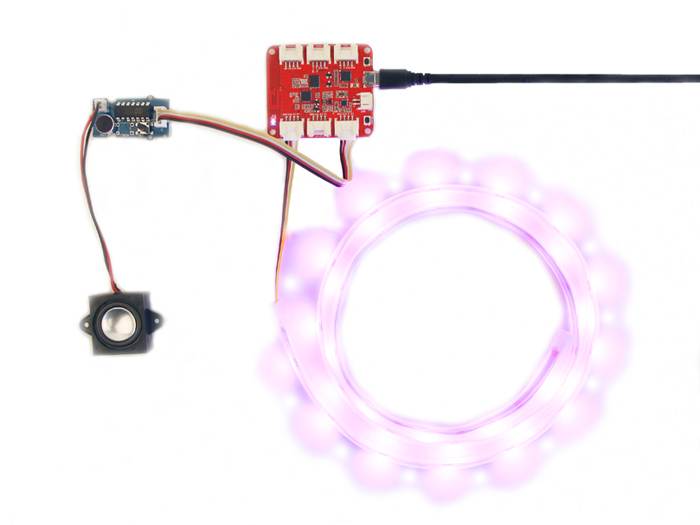
1set Grove Starter Kit for LinkIt 7688 Duo
Description
The kit contains 9 selective Grove modules and the Smart 7688 Duo breakout board to get you quickly started with LinkIt Smart 7688 Duo under Arduino environment. It has an online tutorial with step-by-step instructions. People can learn more about open source hardware and cloud service, as well as to build up projects with this kit.
Features
Plug-n-play Grove interfaces. No breadboard, no jumper wires or soldering
Designed for smart-home applications
All essential and basic functional modules included
Detailed and completed tutorial
Part List
1 x Grove - Light Sensor
1 x Grove - Infrared Emitter
1 x Grove - Infrared Receiver
1 x Grove - Encoder
1 x Grove - Touch Sensor
1 x Grove - OLED Display 0.96"
1 x Grove - Temperature & Humidity Sensor
1 x Grove - Relay
1 x Grove - Gas Sensor (MQ2)
1 x IR Remote Control
1 x Smart 7688 Duo breakout board
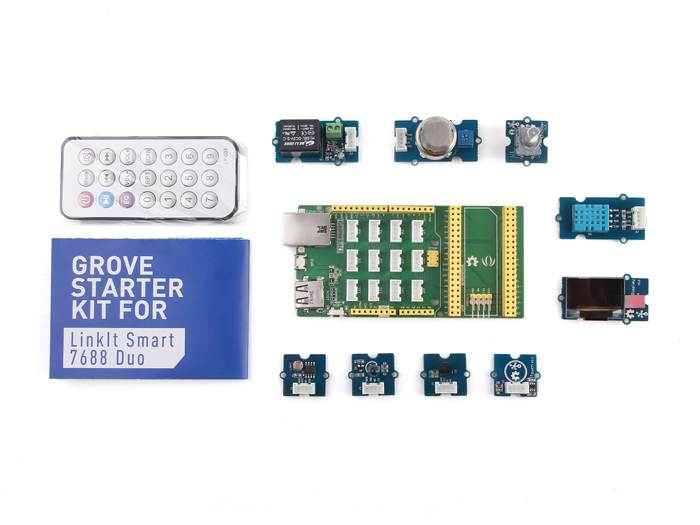
1pc RePhone Lumi Kit
Description
RePhone Lumi Kit is specially designed for LED lovers - embedding the Xadow GSM+BLE module into your awesome lighting device and control the light via SMS or Bluetooth!
TheXadow Duino is specially designed for building up awesome Lighting Devices using the most popular RGB LED WS2812b. Based on the MCU ATmega32u4 and the built-in micro USB, Xadow Duino allows you to either control the RGB LEDs directly from the software in RePhone Kit Create, or program the board with Arduino IDE to make it work dependently.
Features
Slim and small modules
Powered by Xadow GSM+BLE
Programmable LED Driver
Various rich-featured add-on modules for function extension
Stackable, chainable and sewable with other Xadow Modules
Specification
Core Module: Xadow GSM+BLE
Microcontroller: MT2502
MCU Core: 32-bit ARM7EJ-STM RISC processor
RAM: 4MB
Flash Memory: 16MB
Power Supply: 3.3 – 4.2V
Power Consumption: 20mW/30mW/52mW @ standby(no radio)/standby(GSM)/standby(BT)
Quad-band: 850/900/1800/1900 MHz
GPRS: Class 12 modem
Clock Speed: 260 MHz
Connector: 35 PIN Connector & 11 PIN Connector for Xadow, SMD Female JST battery connector
Interfaces: External ports for LCD, camera, I2C, SPI, UART, and GPIOs etc.
Dimension: 25.37mm X 20.30mm / 1"X 0.8"
Documents
Please visit our wiki page for more info about this product. It will be appreciated if you can help us improve the documents, add more demo code or tutorials. For technical support, please post your questions to our forum.
Technical Details
Dimensions 200mm x 140mm x 20mm
Weight G.W 147g
Battery Lithium Cells/Batteries packed with equipment UN3481 -PI966
Part List
Xadow GSM+BLE 1
Xadow Duino 1
Xadow GSM Breakout 1
FPC Cable 35 PIN 2
FPC Cable 11 PIN 2
Battery 520mAh 1
User Guide 1
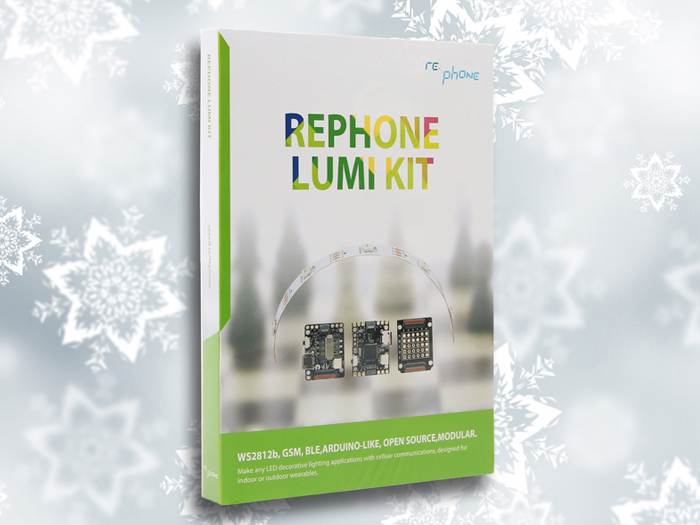
1Set GrovePi Zero Base Kit
The GrovePi Zero makes electronics prototyping with the Raspberry Pi Zero easy and fast. The powerful little Raspberry Pi Zero is just waiting for you to release your maker creativity and build the projects you’re passionate about. With the GrovePi Zero you can start your connected device projects in minutes. This is a compact version of the GrovePi+! The kit allows you to easily connect a variety of sensors to the Raspberry Pi. Simply connect a cable from the GrovePi Zero to your sensor, download our software examples, and Raspberry Pi Zero enters the physical world.
Note:
GrovePi Zero will NOT work with the original Raspberry Pi Model A & Raspberry Pi Model B.
Raspberry Pi Zero is not included in this kit.
Features
Connect multiple sensors to the raspberry pi zero.
Grovepi is a system that connects over 100 grove sensors and devices to the raspberry pi.
No need for soldering or breadboards: plug in your grove sensors and start programming.
Includes a sturdy case to protect your raspberry pi zero and grovepi zero.
The grovepi zero has 6 ports. There are 3 analog ports, 1 serial port, and 2 digital ports.
Technical Details
Dimensions 185mm x 125mm x 48mm
Weight G.W 290g
Battery Exclude
Part List
GrovePi Zero Board 1
GrovePi Zero Acrylic Case 1
Grove Sound Sensor 1
Grove Temperature and Humidity 1
Grove Light Sensors 1
Grove Relay 1
Grove Button 1
Grove Ultrasonic Ranger 1
Grove Rotary Angle Sensor 1
Grove LCD RGB Backlight 1
Grove Buzzer 1
Grove Red LED 1
Grove Blue LED 1
Grove Green LED 1
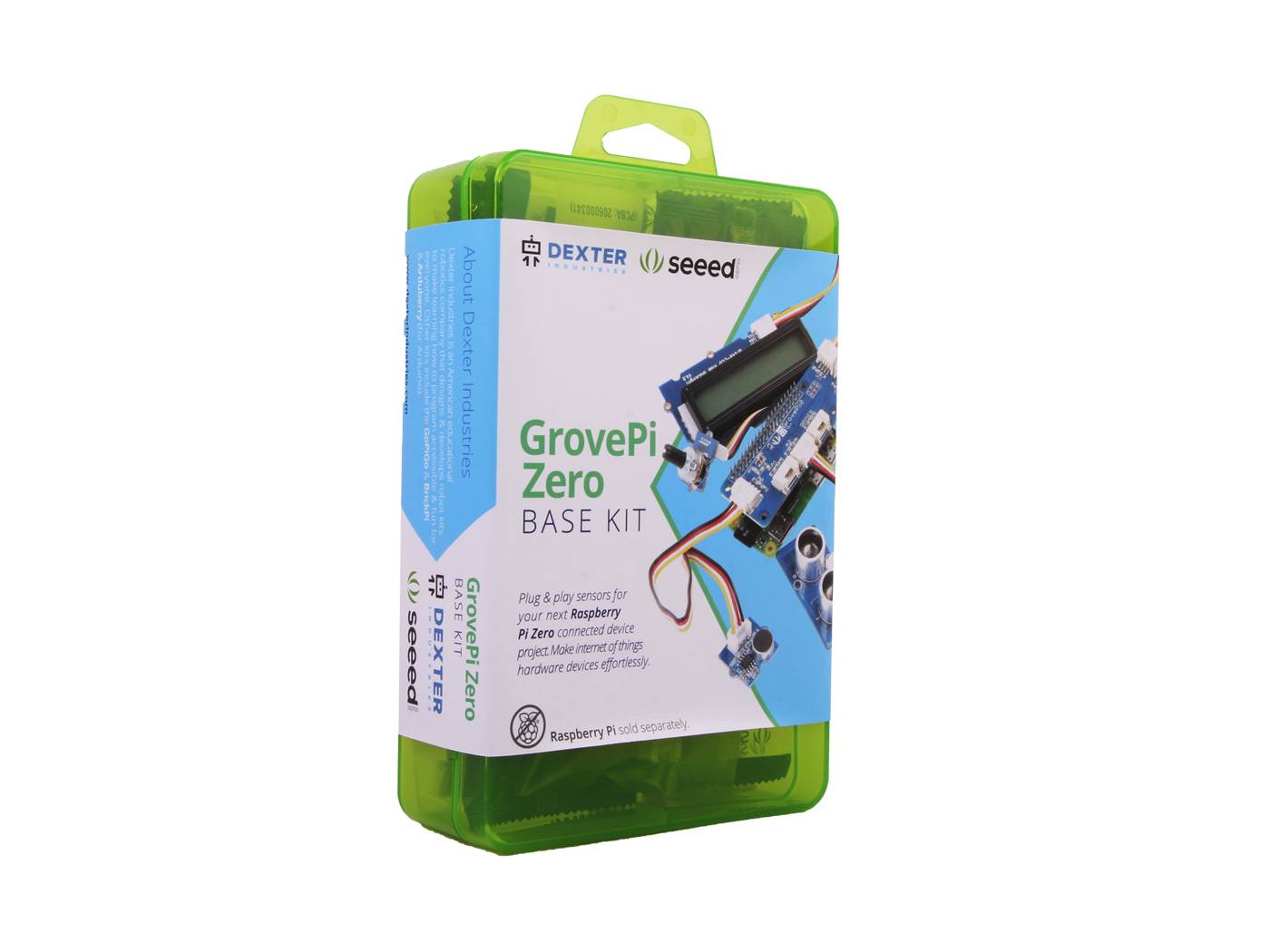
SeeedStudio 38mm 8x8 Square Matrix LED - Green Common Anode
-A bright green 8x8 LED matrix display. There are led matrix driver platform Rainbowduino .SpecificationPixel Array: 8 x 8Color: GreenLuminous Intensity: 40mcdPackage Dimension: 38mm x 38mmReverse Voltage(Max): 5VForward Current(Max): 25mAPeak Forward Current(Max): 100mAPower Dissipation(Max): 100mWOperating Temperature(Max):-35~+85¡æStorage Temperature(Max): -35~+85¡æLead Solder Temperature(Max): 260¡æ for 5 secondsDocumentsFor any technical support or suggestion, please kindly go to our forum.
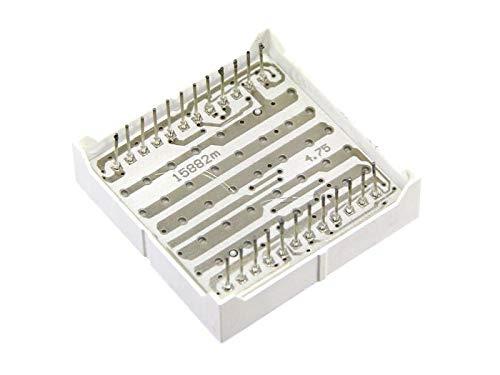
1pc Wio LTE AU Version- 4G, Cat.1, GNSS, Espruino Compatible
Wio Tracker (Wireless Input Output) is an open source gateway which enable faster IoT GPS solutions. It is Arduino and Grove compatible development boards that helps you track nearly any moving thing on the planet and then upload that data wirelessly. The Wio LTE is the LTE version of Wio Tracker, so now we’ve got 2 versions of Wio Tracker and the LTE (4G) version will make some differences.
There are three main updates comparing the Wio LTE to the 2G version. Firstly, from its name we know that the Wio LTE supports LTE (4G) communication which is much faster and popular than 2G. Secondly, the Wio LTE supports in total 4 different GNSS – GPS, Beidou, GLONSS and Galileo, the QZSS is also supported as bonus. With more GNSS support, positioning will be more accurate. Thirdly, the Wio LTE‘s MCU is upgraded to STM32, which is based on Cortex-M4, makes the Wio LTE 5 times faster than the 2G version. What’s more, the flash and RAM have also been raised to 1Mbytes and 192+4k bytes.
Apart from the three main updates, the LTE version is almost the same as the 2G version. If your project is using the 2G version, it would be very easy to update to the LTE version because we have prepared transplantable and expansible AT command library. The Arduino and Grove compatibility allows for quicker development through numerous libraries and a supportive community. The GPS library which will be available with the board is not just limited to Arduino – it can function just as well if you chose to develop in C/C++. With the onboard 6 Grove connections, developers can create any combination of our 180+ sensors and actuators to build project and solve any problem. Simplifying the prototyping and development phase is our goal.
The Wio LTE is well suited for outdoor projects where the device can connect to the GPS satellites and provide a real-time location of the item it is attached to. The LTE provides a wide bandwidth which allows much faster interaction between the user and device. If you are going to build projects like a bicycle sharing service, tracking pets or livestock, locating a vehicle, or even keeping track of a child, the Wio LTE is the best solution.
Note:
This is the AU version of Wio LTE,and there are in total 4 different versions. Here is a table to show the main difference between different versions. For more detail information, please refer to this manual.
Versions LTE Bands 3G Bands GSM GNSS
US FDD: B2/B4/B12 WCDMA: B2/B4/B5 / GPS/GLONASS/Beidou/Compass/Galieo/GZSS
EU
FDD: B1/B3/B5/B7/B8/B20
WCDMA: B1/B5/B8 900/1800 GPS/GLONASS/Beidou/Compass/Galieo/GZSS
AU FDD: B1/B2/B3/B4/B5/B7/B8/B28 WCDMA: B1/B2/B5/B8 850/900/1800/1900 GPS/GLONASS/Beidou/Compass/Galieo/GZSS
JP FDD: B1/B3/B8/B18/B19/B26 / / /
B2 band on EC21-AU module does not support Rx-diversity.
Technical Details
Weight G.W 18.5g
Battery Exclude
Part List
Wio LTE AU Version- 4G, Cat.1, GNSS, Espruino Compatible 1
LTE Antenna 1
GPS Antenna 1
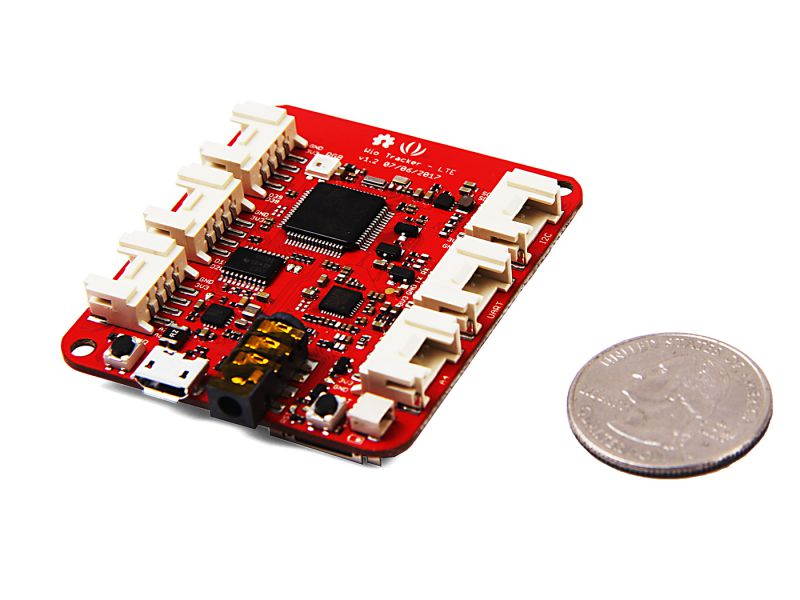
Seeed Arch Pro Mbed Enabled Online Development Tools for Rapid Prototyping
Arch Pro is an mbed enabled development board for rapid prototyping. It's a variant of mbed LPC1768 with build-in Ethernet, USB Host/Device, Grove connectors and Arduino form factor. With a variety of Shield and Grove modules and lots of software libraries for Arch Pro, you can implement Ethernet, USB Host/Device and NFC applications rapidly and easily.
Specification:
mbed enabled
Online development tools
Easy to use C/C++ SDK
Handy libraries
Arduino form factor with two Grove connectors
Drag-n-drop programming
Debug using CMSIS DAP
USB virtual serial for communication
NXP LPC1768 MCU
Powerful ARM Cortex-M3 core
Up to 100MHz
512KB Flash, 64KB RAM
Ethernet, USB Host/Device, 4xUART, 3xI2C, 2xSPI.
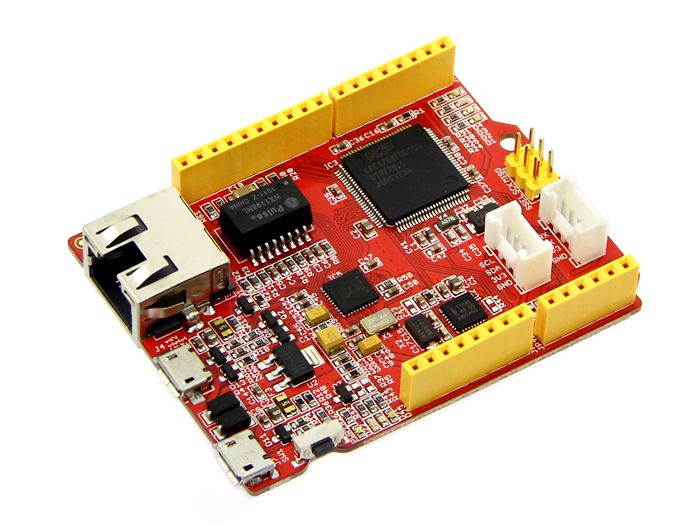
1pc Wio LTE EU Version - 4G, Cat.1, GNSS, Espruino Compatible
Wio Tracker (Wireless Input Output) is an open source gateway which enable faster IoT GPS solutions. It is Arduino and Grove compatible development boards that helps you track nearly any moving thing on the planet and then upload that data wirelessly. The Wio LTE is the LTE version of Wio Tracker, so now we’ve got 2 versions of Wio Tracker and the LTE (4G) version will make some differences.
There are three main updates comparing the Wio LTE to the 2G version. Firstly, from its name we know that the Wio LTE supports LTE (4G) communication which is much faster and popular than 2G. Secondly, the Wio LTE supports in total 4 different GNSS – GPS, Beidou, GLONSS and Galileo, the QZSS is also supported as bonus. With more GNSS support, positioning will be more accurate. Thirdly, the Wio LTE‘s MCU is upgraded to STM32, which is based on Cortex-M4, makes the Wio LTE 5 times faster than the 2G version. What’s more, the flash and RAM have also been raised to 1Mbytes and 192+4k bytes.
Apart from the three main updates, the LTE version is almost the same as the 2G version. If your project is using the 2G version, it would be very easy to update to the LTE version because we have prepared transplantable and expansible AT command library. The Arduino and Grove compatibility allows for quicker development through numerous libraries and a supportive community. The GPS library which will be available with the board is not just limited to Arduino – it can function just as well if you chose to develop in C/C++. With the onboard 6 Grove connections, developers can create any combination of our 180+ sensors and actuators to build project and solve any problem. Simplifying the prototyping and development phase is our goal.
The Wio LTE is well suited for outdoor projects where the device can connect to the GPS satellites and provide a real-time location of the item it is attached to. The LTE provides a wide bandwidth which allows much faster interaction between the user and device. If you are going to build projects like a bicycle sharing service, tracking pets or livestock, locating a vehicle, or even keeping track of a child, the Wio LTE is the best solution.
Note:
This is the EU version of Wio LTE,and there are in total 4 different versions. Here is a table to show the main difference between different versions. For more detail information, please refer to this manual.
Technical Details
Weight G.W 18g
Battery Exclude
Part List
Wio LTE EU Version - 4G, Cat.1, GNSS, Espruino Compatible 1
LTE Antenna 1
GPS Antenna 1
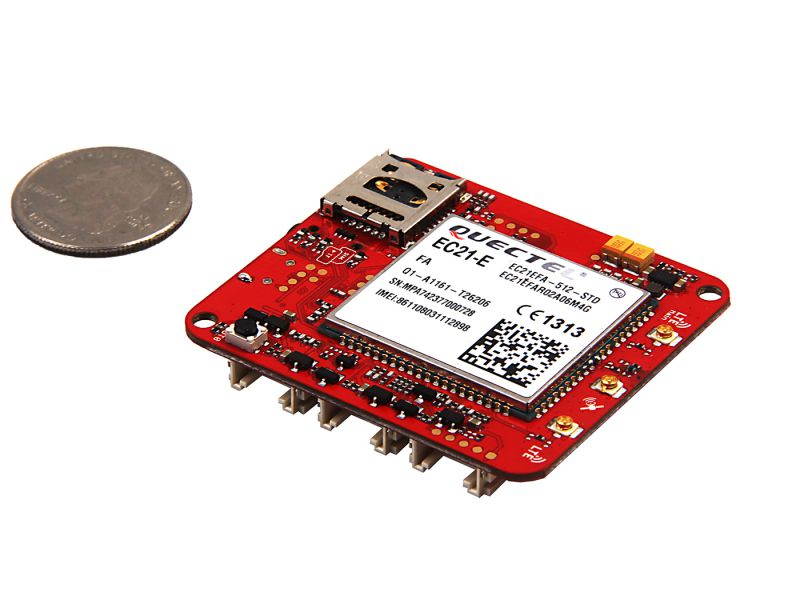
1pc nRF52832-Micro Development Board
nRF52832-MDK is a fully open-source development kit based on Nordic nRF52832 for IoT embedded applications.
It also includes an integrated debug adapter -- DAPLink, which provides methods to program and debug your applications. This enables developers to quickly establish a Bluetooth connection and evaluate nRF52832 SoC.
Hardware Features
•ARM® Cortex™-M4F
•512kB Flash Memory + 64kB RAM
•Bluetooth low energy
•NFC™-A tag
•On-board debug probe DAPLink
•Up to 24 GPIOs
•On board chip antenna
•3.3V working voltage
•48mm x 18mm, Breadboard-friendly
nRF52832-MDK can be flashed viaDAPLink, which provides methods to program and debug an application running on ARM processors via SWD.
Using the CMSIS-DAP interface, the board can be flashed via the USB storage interface (drag-and-drop) and also viapyOCD.
Support
Please contact support@makerdiary.co for technical support.
Technical Details
Dimensions 50mm x 18mm x 10mm
Weight G.W 14g N.W 12g
Battery Exclude
Part List
nRF52832-MDK 1
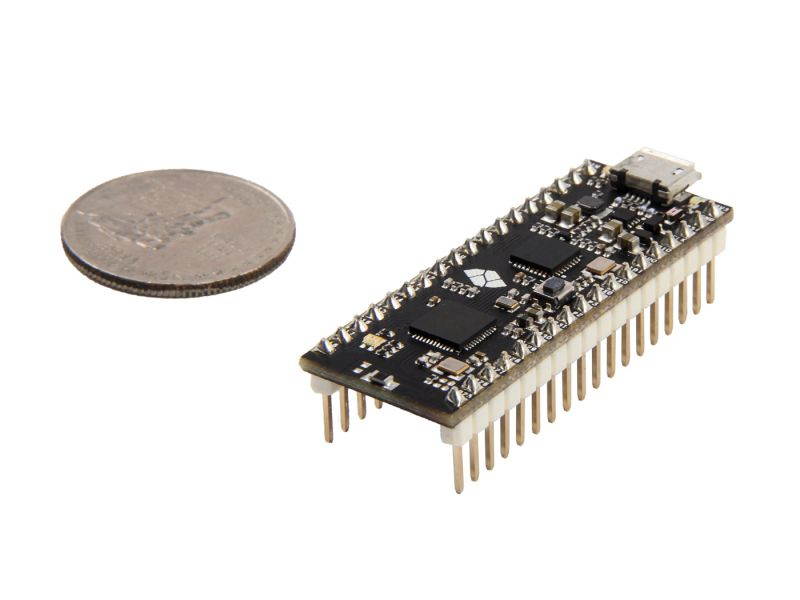
1pc Prototyping system for the micro:bit
This prototyping system for the micro:bit is a great way to start making circuits and making experiments. This gives access to the pins on the bottom of the micro:bit.
Please note: micro:bit is NOT included.
This prototyping system uses the specially designed edge connector breakout board for micro:bit. The micro:bit pins are broken out to a row of solderable pads. The SCL and SDA pins are separated at the edge of the board providing easy identification. The PCB includes a prototyping area with 3V, 0V and unconnected rows that can be soldered to. This allows easy connection of switches, sensors and any pull-up or pull-down resistors etc. as required.
This prototyping system is used in conjunction with a small prototype breadboard. This makes it easy to connect additional components using the included jumper wires. No soldering required.
Note: This kit requires assembly.
Features:
No soldering is required
Breaks out 21 pins from the micro:bit using the pre-built edge connector breakout board for micro:bit
Small prototype breadboard included so you can use additional components
Run your own custom code from your micro:bit to interact with external components
Technical Details
Dimensions 160mm x 95mm x 35mm
Weight G.W 140g N.W 138g
Battery Exclude
Part List
small prototype breadboard 1
jumper wires male to male 10
jumper wires male to female 10
Perspex mounting plate 1
edge connector breakout board for micro:bit - pre-built 1
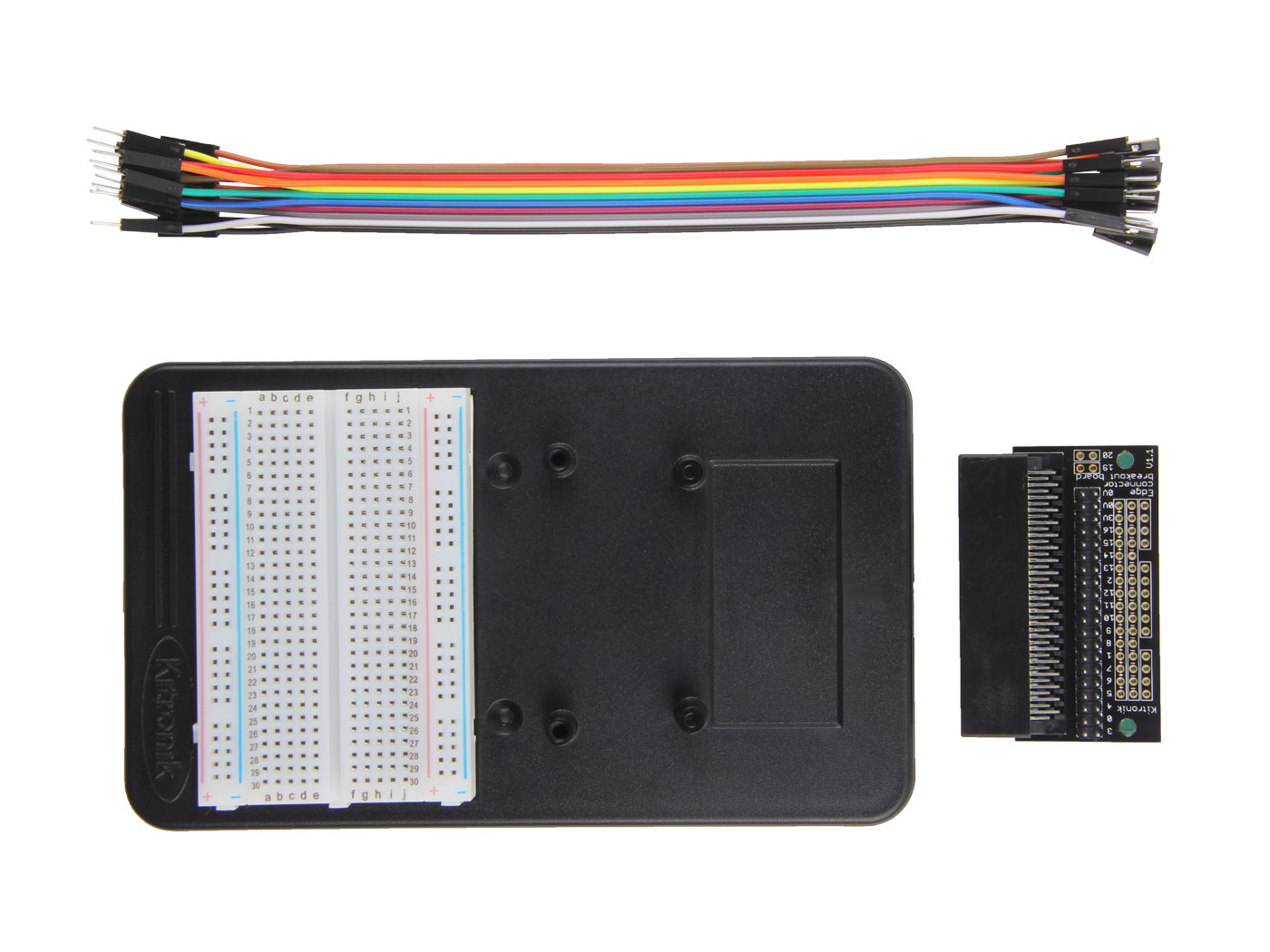
SeeedStudio - Crazyradio PA - Long Range 2.4Ghz USB Radio Dongle With Antenna - DIY Maker Open Source BOOOLE
Crazyradio PA is a long range open USB radio dongle based on the from Nordic Semiconductor. It features a 20dBm power amplifier, LNA and comes pre-programmed with Crazyflie compatible firmware. The power amplifier boosts the range, giving a range of more than 1km (line of sight) together with the Crazyflie 2.0 and above 2km Crazyradio PA to Crazyradio PA (line of sight). The Crazyradio PA is not only for usage together with the Crazyflie and Crazyflie 2.0. Since it's an open project with firmware written from scratch and a Python API for usage it's great building block for systems that require longer range than WiFi and doesn't have the same requirements for bandwidth. The hardware comes shipped with the latest firmware as well as a bootloader that enables firmware upgrades via USB without any additional hardware needed. The Crazyflie PA is compatible with the first generation of the Crazyflie. Specification: - Based on nRF24LU1+ chip from Nordic Semiconductor - 8051 MCU at up to 16MHz with 32Kb flash and 2Kb SRAM - 2.4GH z ISM band radio - USB device peripheral - 125 radio channels - 2Mbps, 1Mbps and 250Kps communication data-rate - Sends and receives data packets of up to 32 bytes payload - Automatically handles addresses and packet ack - Hardware SPI and UART - Combatible with Enhanced Shock Burst protocol from Nordic Semiconductor - Radio specification: - 20dBm output power (100mW) - Low Noise Amplifier (LNA) - RP-SMA connector - Can be powered with up to 13V via expansion header - 2x5 2.54 mm expansion header with following signals (not mounted): - Hardware support for PPM input - Up to 13V input power - GND - PPM - SPI/UART - Standard USB-A connector - Mechanical specification: - Weight: 6g - Size (WxHxD): 58x16x 6.5 mm (including connectors) UPC: 720405520162 SKU: ADIB00VYA3A2U
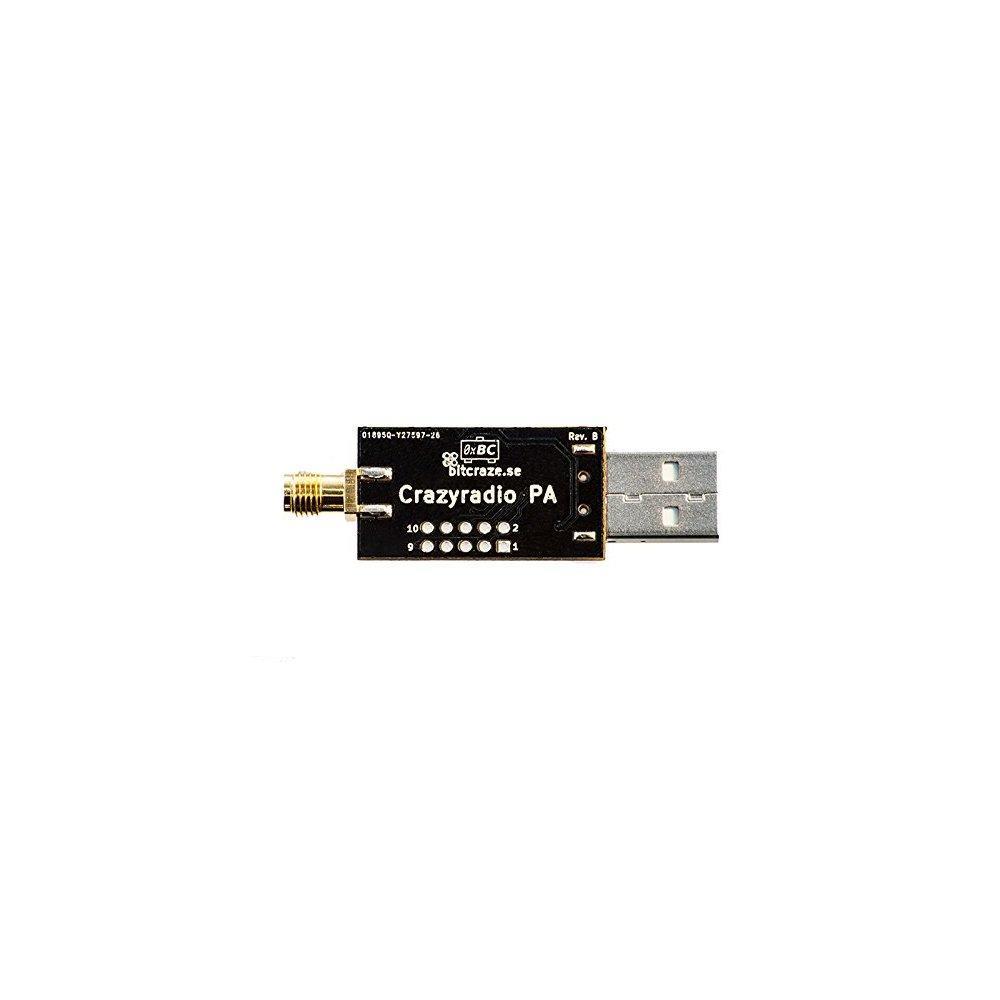
1pc RePhone Geo Kit
Description Tracking things down with the RePhone Geo Kit! The combination of Xadow GSM+BLE and Xadow GPS v2 is what makes RePhone Geo Kit brilliant. The kit can fulfill your GPS based project easily and excellently. It allows you to obtain the real-time geographic position, altitude, travelling speed and time information at any time, and all-weather conditions, through GSM network (SMS). Also as a bonus, the Xadow GSM Breakout can provides you more possibilities hacking electronics. Features Slim and small modules Powered by Xadow GSM+BLE High sensitivity Low power consumption Various rich-featured add-on modules for function extension Stackable, chainable and sewable with other Xadow Modules Technical Details Dimensions 200mm x 140mm x 20mm Weight G. W 147g Battery Lithium Cells/Batteries packed with equipment UN3481 -PI966 Core Module Xadow GSM+BLE Microcontroller MT2502 MCU Core 32-bit ARM7EJ-STM RISC processor RAM 4MB Flash Memory 16MB Power Supply 3.3 – 4.2V Power Consumption 20mW/30mW/52mW @ standby (no radio) /standby (GSM) /standby (BT) Quad-band 850/900/1800/1900 MHz GPRS Class 12 modem Clock Speed 260 MHz Connector 35 PIN Connector & 11 PIN Connector for Xadow, SMD Female JST battery connector Interfaces External ports for LCD, camera, I2C, SPI, UART, and GPIOs etc. Dimension 25.37 mm X 20.30 mm / 1'' X 0.8 '' Part List Xadow GSM+BLE 1 Xadow GPS v2 1 Xadow GSM Breakout 1 FPC Cable 35 PIN 1 FPC Cable 11 PIN 1 Battery 520mAh 1 User Guid 1
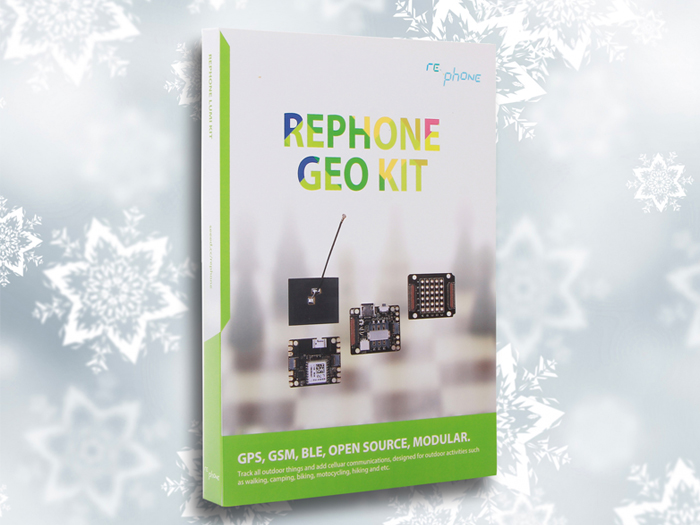
1pc Dragino LoRa Shield - support 433M frequency
The Dragino LoRa Shield is a long range transceiver on a Arduino shield form factor and based on Open source library.The LoRa Shield allows the user to send data and reach extremely long ranges at low data-rates.It provides ultra-long range spread spectrum communication and high interference immunity whilst minimising current consumption.
The LoRa Shield based on RFM98W targets professional wireless sensor network applications such as irrigation systems, smart metering, smart cities, smartphone detection, building automation, and so on.
Using Hope RF’s patented LoRa™ modulation technique the LoRa Shield can achieve a sensitivity of over -148dBm using a low cost crystal and bill of materials. The high sensitivity combined with the integrated +20 dBm power amplifier yields industry leading link budget making it optimal for any application requiring range or robustness. LoRa™ also provides significant advantages in both blocking and selectivity over conventional modulation techniques, solving the traditional design compromise between range, interference immunity and energy consumption.
These devices also support high performance (G)FSK modes for systems including WMBus, IEEE802.15.4g. The LoRa Shield deliver exceptional phase noise, selectivity, receiver linearity and IIP3 for significantly lower current consumption than competing devices.
Features
Compatible with 3.3v or 5v I/O Arduino Board.
Frequency Band: 433 MHZ
Low power consumption
Compatible with Arduino Leonardo, Uno, Mega, DUE
External Antenna via I-Pex connector
Specificaiton
168 dB maximum link budget.
+20 dBm - 100 mW constant RF output vs.
+14 dBm high efficiency PA.
Programmable bit rate up to 300 kbps.
High sensitivity: down to -148 dBm.
Bullet-proof front end: IIP3 = -12.5 dBm.
Excellent blocking immunity.
Low RX current of 10.3 mA, 200 nA register retention.
Fully integrated synthesizer with a resolution of 61 Hz.
FSK, GFSK, MSK, GMSK, LoRa™ and OOK modulation.
Built-in bit synchronizer for clock recovery.
Preamble detection.
127 dB Dynamic Range RSSI.
Automatic RF Sense and CAD with ultra-fast AFC.
Packet engine up to 256 bytes with CRC.
Built-in temperature sensor and low battery indicator.
Part List
1 x LoRa Shield (support 433M frequency)
1 x 433MHz Antenna
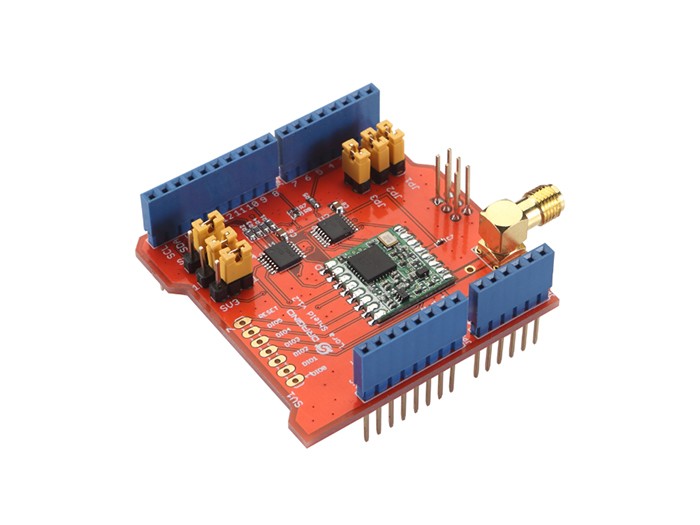
Seeed SLD01091P Shield Bot Smart Robot Expansion Board (Works with Arduino Official Boards)
The Shield Bot V1.1 can use the usb port of PC to charge battery. And the charging efficiency is greatly improved after we optimize the circuit. And you can use the Arduino/Seeeduino Vin pin to fast charge.
Note: Compatible Arduino Board not included, try the Seeeduino.
Features:
Easy to start - The Shieldbot is plug and play and can be running out of the box in minutes ;
Expandable for imagination - solderless grove expansion ports enable easy attachment of more sensors and actuators, and shield headers allow the use of additional Arduino shields;
Open source - Its designed to be hacked, adapted and transformed into whatever you want it to be;
Arduino Based - the Shieldbot is an Arduino shield, so the extensive Arduino community and shield ecosystem can be used for endless expansion;
Charging efficiency - Can quickly fully charged, And has a high efficienty.
Specifications:
5x IR reflectance sensors for line and edge following;
900 mAh Li-ion rechargeable battery;
Two durable 160:1 micro metal gearmotors;
6x Grove expansion ports;
Stackable shield headers.
Packing List:
1 x Shield Bot board
1 x Transparent acrylic
1 x Film
1 x Battery
6 x Screws
6 x Screw nuts
10 x Separation pillars
1 x Fixed plate
1 x Screwdriver
1 x Mounting Guide
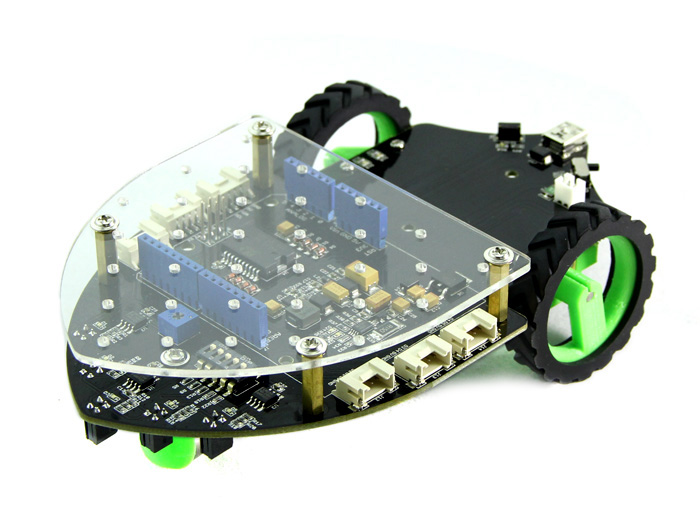
1set ARDX - Basic Experimentation Kit for Arduino
Description NOTE: This kit DOES NOT include the Arduino board, please visit ARDX - The starter kit for Arduino if you need an extra Arduino in the kit. People gets bored easily these days, while we believe engineering can always simulate the mind. That is actually how most of literate parents enlighten their kids, inspiring them with engineering. They firstly start with SIMPLE, FUN and BASIC experiments – using a range of electronic components to build easy circuits, let the kids feel the fun in it, and meanwhile learn how it works. TheARDX - Basic Experimentation Kit for Arduino is such a kit that helps beginners perceive the knowledge of electronics. Not only the kit includes a wide range of electronic components, but also it provides a detailed Experimenter’s Guide that illustrates up to 13 different circuit diagrams constructed with easy-to-use breadboard. After bread-boarding your own circuit as instructed, you will be familiar with basic elements of LEDs, resistors, photo sensors and temperature sensors etc. Then you can go even further with some more advanced components like piezo elements, relay, DC motor and servo. Some of you might prefer reading the guide online, there is also an electronic version of the Experimenter’s Guide, which can be downloaded here. Also if you encounter any problems, want to ask some questions, or would you like to know more about any parts, extra help is only an e-mail away at help@oomlout. com. Features Designed for beginners Simple, easy bread-boarding circuit learning Help you grasp the use of basic elements, and also get to know some advanced electronic components 13 circuits at different level for you to learn progressively A color printed Experimenter's Guide included, providing step-by-step instructions Part List 75x Premium jumper wires 1x Type B USB cable 1x 9V battery clip 1x 5mm diffused RGB LED 1x Piezo Sensor - Minisensor 100 10x 5mm red LEDs 10x 5mm green LEDs 1x 10mm blue LED 1x Toy DC motor 1x 9g High Sensitive Mini sensor 1x 74HC595 1x Buzzer 1x 1M resistor 2x Pushbuttons 1x Potentiometer (10K) 1x Light sensor (5528) 1x TMP36 1x Relay (5v, 3A/120VAC) 2x P2N2222A 25x 560 Ohm resistors 3x 2.2 k Ohm resistors 3x 10k Ohm resistors 1x 220uf capacitor 2x 1N4001 1x Breadboard 1x Male pin header 4x Plastic rivet 1x Acrylic holder 4x Rubber bumpers 13x Color breadboard layout sheets 1x Full color printed Experimenter’s Guide Documents For technical discussion, please come to our Forum. For projects that you would like to share with the community, please visit Recipe. Technical Details Dimensions 190mm x 120mm x 45mm Weight G. W 414g Battery Exclude Part List Premium jumper wires 75 Type B USB cable 1 9V battery clip 1 5mm diffused RGB LED 1 Piezo Sensor - Minisensor 100 1 5mm red LEDs 10 5mm green LEDs 10 10mm blue LED 1 Toy DC motor 1 9g High Sensitive Mini sensor 1 74HC595 1 Buzzer 1 1M resistor 1 Pushbuttons 2 Potentiometer (10K) 1 Light sensor (5528) 1 TMP36 1 Relay (5v, 3A/120VAC) 1 P2N2222A 2 560 Ohm resistors 25 2.2 k Ohm resistors 3 10k Ohm resistors 3 220uf capacitor 1 1N4001 2 Breadboard 1 Male pin header 1 Plastic rivet 4 Acrylic holder 1 Rubber bumpers 4 Color breadboard layout sheet
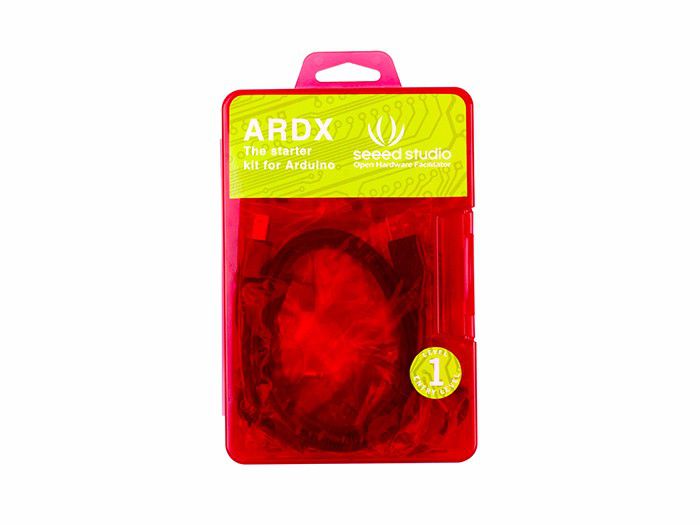
1pc Grove - Mini Track Ball
Description
If you need a mini controller for your robot, This product will be your type. We have developed a product called Grove - Mini Track ball. As you can see, on this product, there is a mini track ball here, you can feel free to rotate the ball horizontally and vertically from any angle. There are 5 axes here, up down left right and press down. As you move the ball, you will get the the values from these 5 axes and the values will be changed according to the direction and speed you move the ball.
With the STM32F103C8T6 and AN48841B chip inside, you can turn plenty of your ideas into real things. It is also standardized with Grove interface which will save you a lot of work in the process of prototyping.
Have fun !
FEATURES
360° and Quick Detection.
Translucent Click Button.
Standardized with Grove Interface.
Powerful MCU to Enrich Your Applications.
SPECIFICATION
Operating Voltage: 3.3V~5.5V (typical at 5V)
Operating Current: 28 mA (Maximum Operating Current: 40 mA)
MCU Frequency: 64 MHz
Operating Frequency: 105±5kHz
Hall Effect Filed Strength Range: |0.5| ~ |8| mT
DOCMENTS
Please visit our wiki page for more info about this product. It will be appreciated if you can help us improve the documents, add more demo code or tutorials. For technical support, please post your questions to ourforum.
Technical Details
Dimensions 100mm x 60mm x 11mm
Weight G.W 8g
Battery Exclude
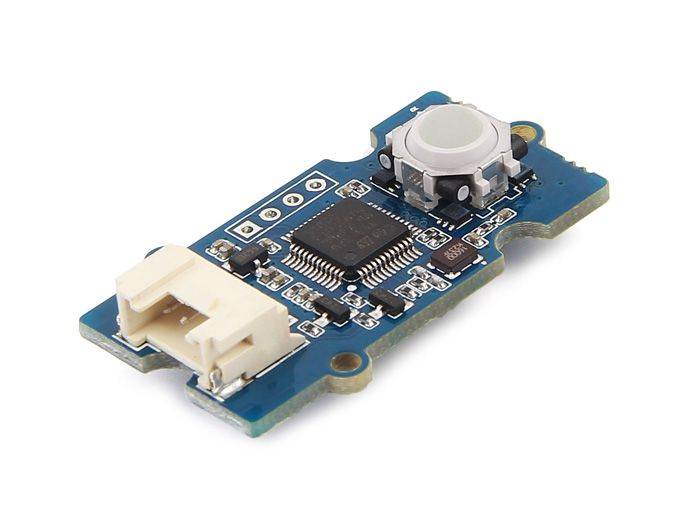
1pc Pimoroni Unicorn HAT HD
We've stepped up our LED game! Unicorn HAT HD crams 256 RGB LEDs, in a 16x16 matrix, onto a single HAT. High-definition rainbow goodness!
You can still use it for all of the same things as the regular Unicorn HAT, but with 4 times as many pixels it makes much more complex animations possible, including scrolling text, and even low resolution videos.
The bundled ninja diffuser makes the pixels look extra-shiny by providing some subtle diffusion, blurring the lines between each pixel. Simply use four of the nuts to space the diffuser slightly away from the HAT, and the other four to secure it.
The MagPi said that Unicorn HAT HAD had a "real wow factor" ?and that the "performance is excellent" in their five star review.
Features
256 RGB LED pixels in a 16x16 matrix
Pixels driven by ARM STM32F and three STP16CPC26 LED drivers
Bundled ninja diffuser, plus nuts and bolts
Unicorn HAT HD pinout
Compatible with Raspberry Pi 3, 2, B+, A+, Zero, and Zero W
Python library
Comes fully assembled
The ARM chip on Unicorn HAT HD does all of the heavy lifting, meaning that you can just bung data to it and it'll take care of the rest. It acts as the man-in-the-middle between your Pi and the three STP16CPC26 LED drivers that actually drive the LEDs.
Software
Our Python library will have your Unicorn HAT HD pooping out high-definition rainbows in a jiffy. There's a stack of examples too, to show you how to create slick animations, simulate the Game of Life, a forest fire or a flickering candle, and even scroll text!
Our software does not support Raspbian Wheezy.
Notes
Photo-sensitivity warning: flashing, strobing, and patterns of lights may cause epileptic seizures. Always take care and immediately stop using if you feel unwell (dizziness, nausea, affected vision, eye twitching, disorientation).
Power: Unicorn HAT HD requires a >2A microUSB power supply for your Pi. We recommend the official Raspberry Pi power supply.
Technical Details
Dimensions 65mm x 30mm x 10mm
Weight G.W 36g
Battery Exclude
Part List
UNICORN HAT 1
Acrylic Plat 1
Nut 8
Screw 4
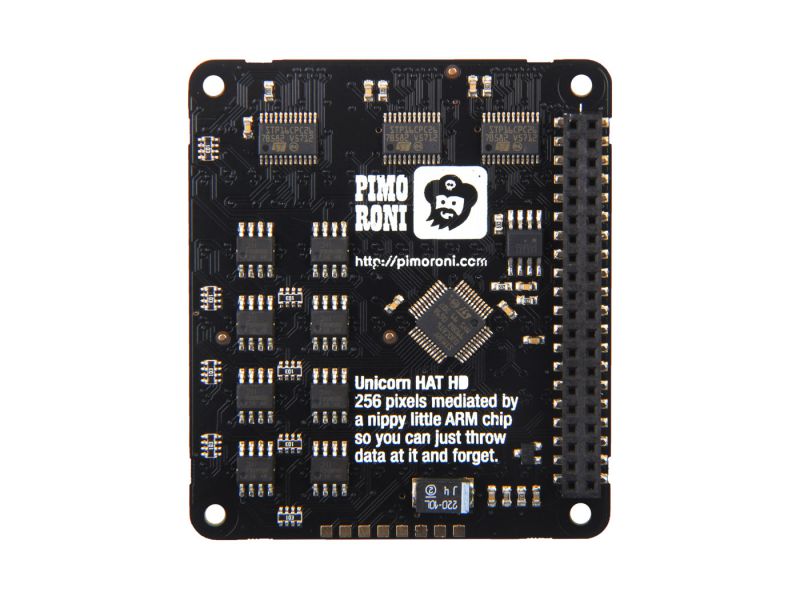
1pc Grove - MP3 v2.0
Description
Grove - MP3 v2.0 is a tiny-size and compact audio module. It supports operations including shuffle and play in an order of various audio files such as WAV and WMV ones. With serial communication, you can use all predefined commands or even the combinations of them to play the music. This module also supports general file systems like FAT16 and FAT32. It gets a Grove UART interface, a 3.5mm audio jack and a micro-SD slot. With this module, you can get some “voices” for silent applications.
Features
General operations on audio files
On-board micro-SD slot and 3.5mm audio jack
Support sample rate of 8/11.025/12/16/22.05/24/32/44.1/48(KHz)
24-bit DAC output, 90 dB(at Max.) dynamic output range, signal-noise ratio at 85 dB
MP3, WMW and WAV audio formats and FAT16, FAT32 files system supported
Embed 10 levels of equalization in total
Specifications
Input: 5V(DC)
Operating current (without signal output state): less than 15 mA
Operating current (with signal output state): less than 40 mA
Chip: KT403A
Chip LDO output voltage: 3.3 V
Chip output current: 100 mA(at Max.)
File formats supported: MP3, WAV, WMA
Maximum memory supported for SD card: 32 GB
Sampled rate : 8/11.025/12/16/22.05/24/32/44.1/48 (KHz)
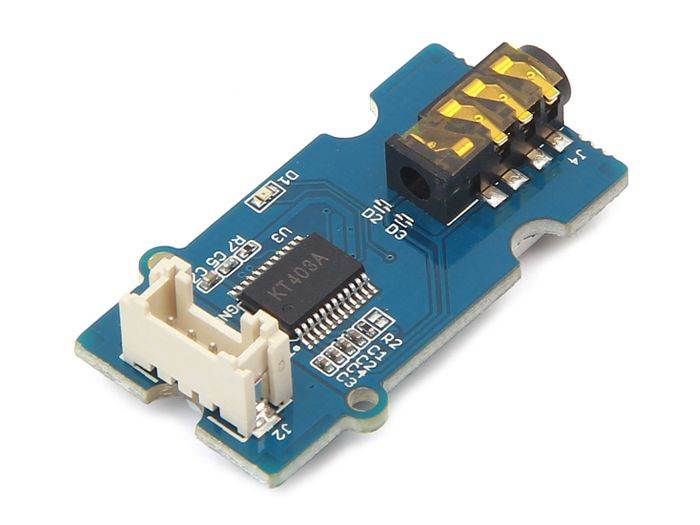
1pc Wio Link Environment Kit
Description
We are always being closely connected with our surroundings. So it is important for us to get some details from an environment. This kit is supposed to finish this task perfectly, at least at a primary level. In this kit, you can find common functional modules to collect data. The most amazing part of this kit is the Wio Link development board which can be utilized for various devices: without a bit programming skill required. All the actions you want your modules performed and the flashing-code operation to Wio Link could be completed with taps in a mobile app. And you can send instructions to your devices over Internet at anywhere. So Wio Link will be perfect utility to making things around smarter for everyone.
Features
Include common frequently-used environment-monitoring functional modules
Grove port interfaced, more practical function and less work
Cost-effective
Weight: 154 g
Documents
Please visit our Wiki page for more information about this product. It will be much appreciated if you can help improve the documents, add more demo codes or tutorials. For technical support, please post your questions to our Forum.
Technical Details
Dimensions 160mm x 90mm x 40mm
Weight G.W 152g
Battery Exclude
Part List
Grove - Moisture Sensor 1
Grove - Temp & Humi Sensor 1
Grove - Digital Light Sensor 1
Grove - Air quality sensor v1.3 1
Wio Link 1
Micro USB Cable - 48cm 1
